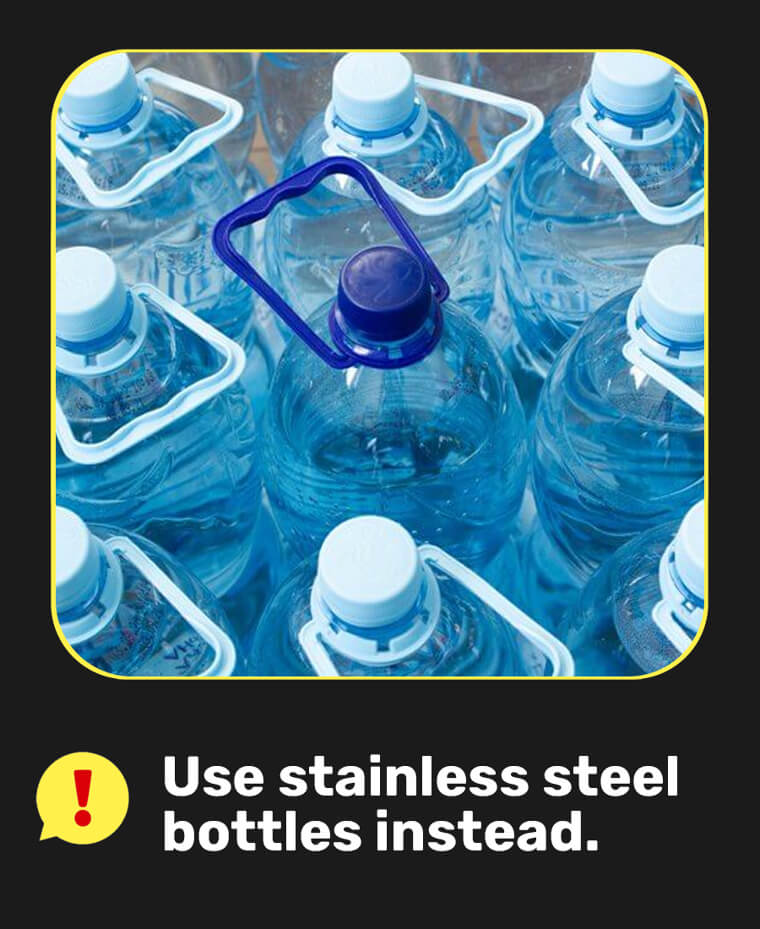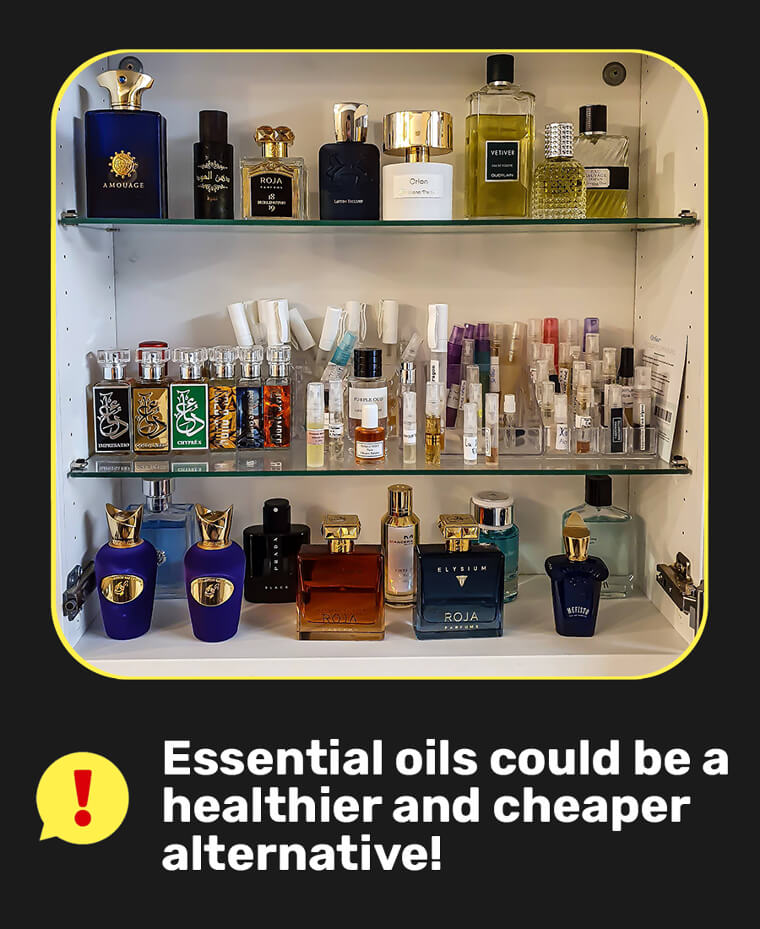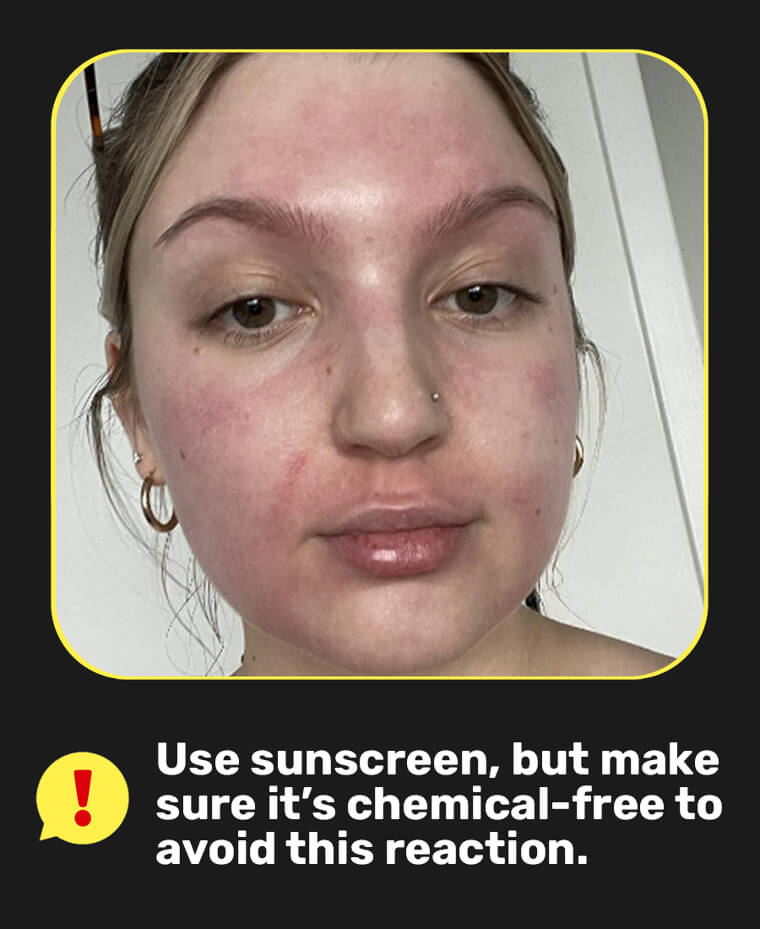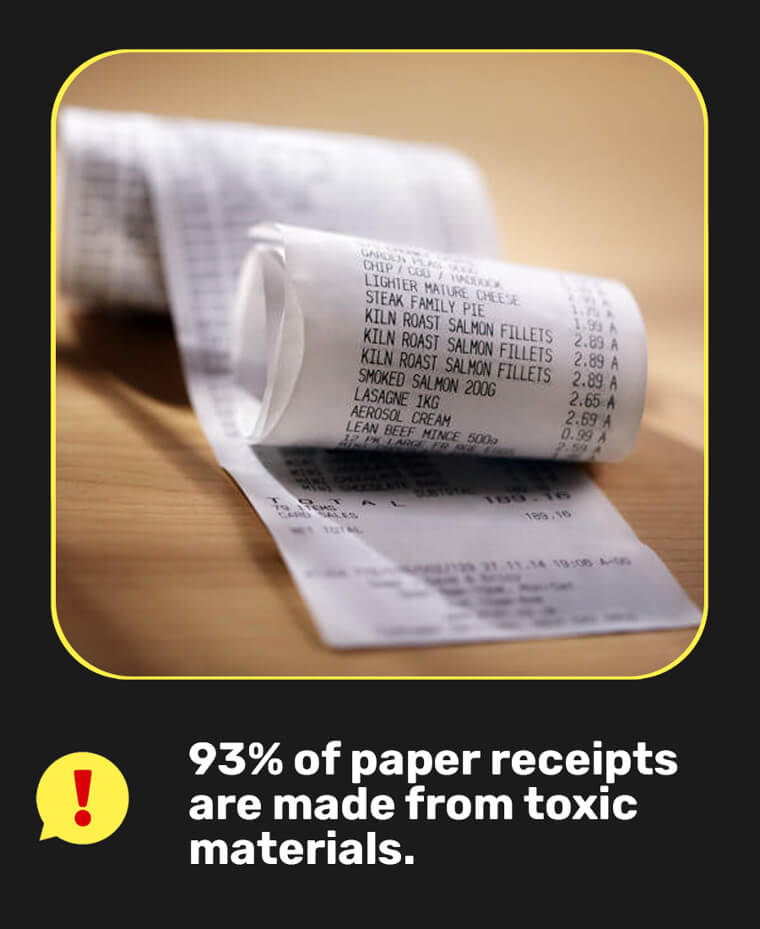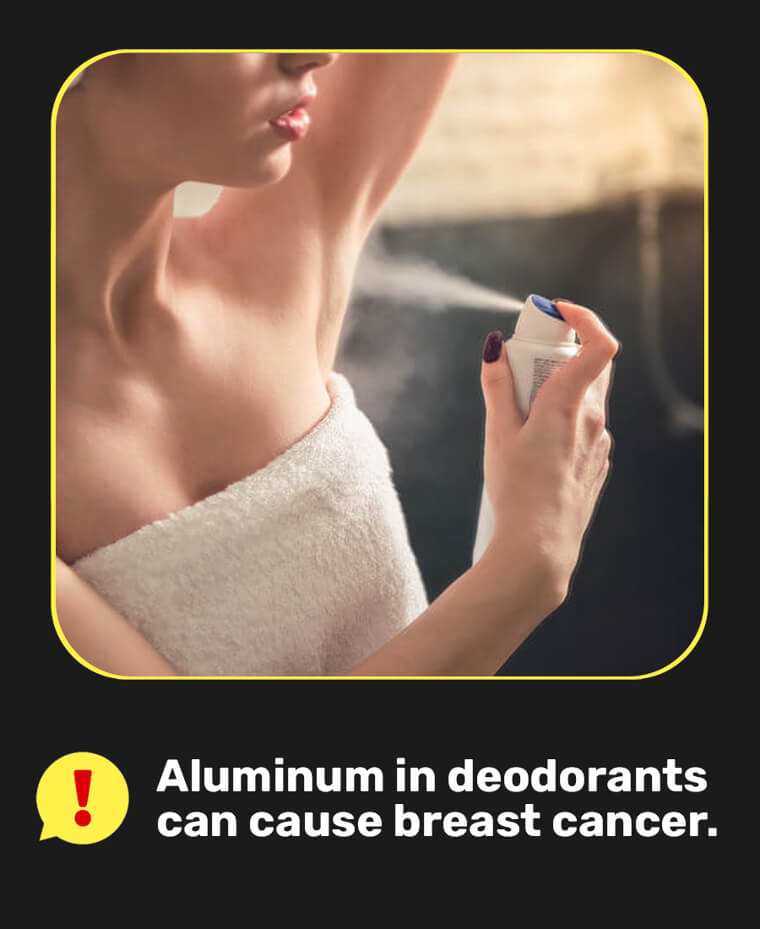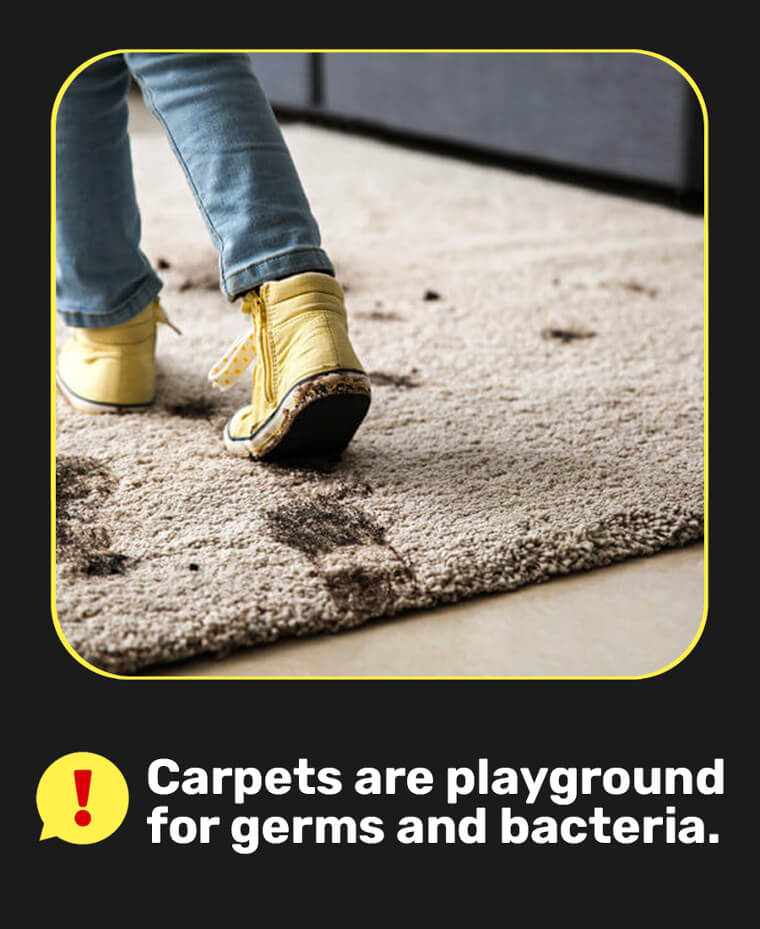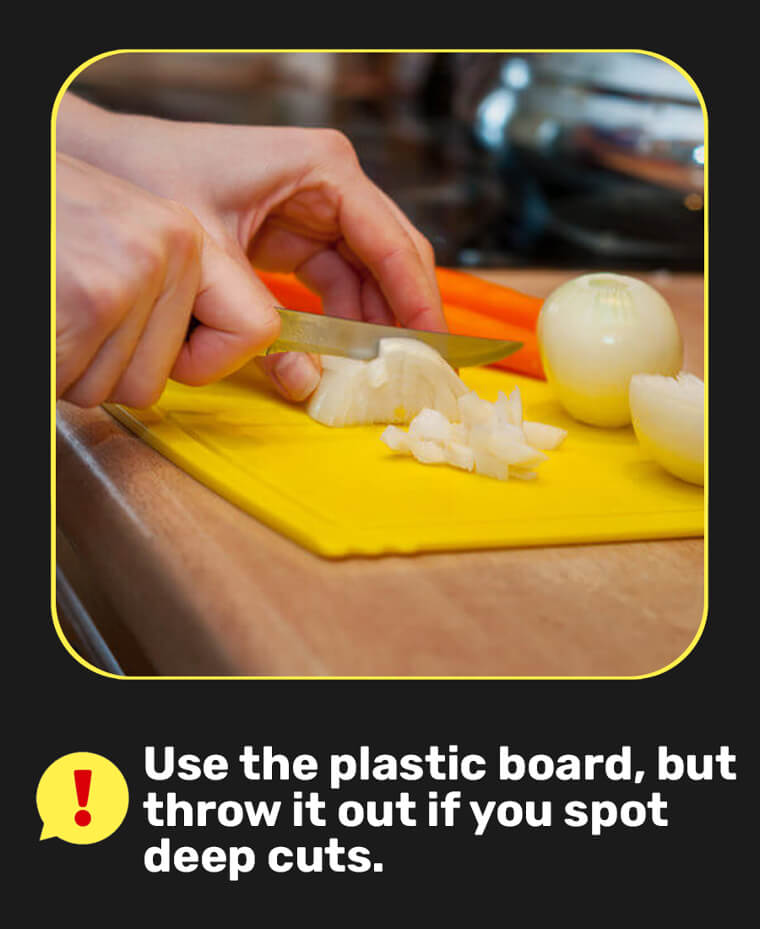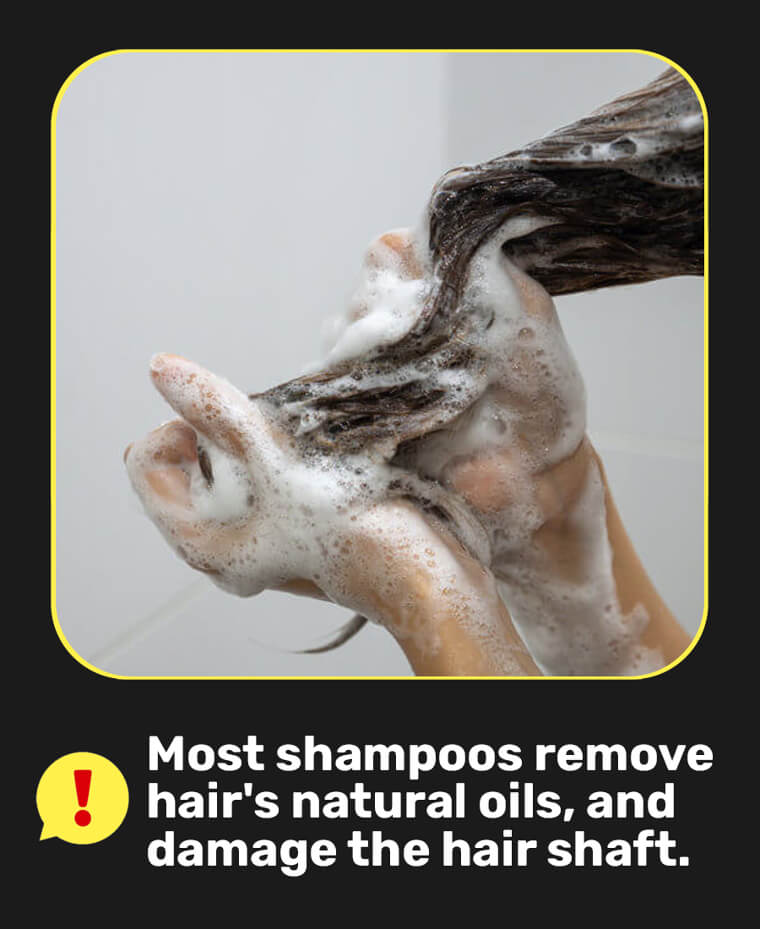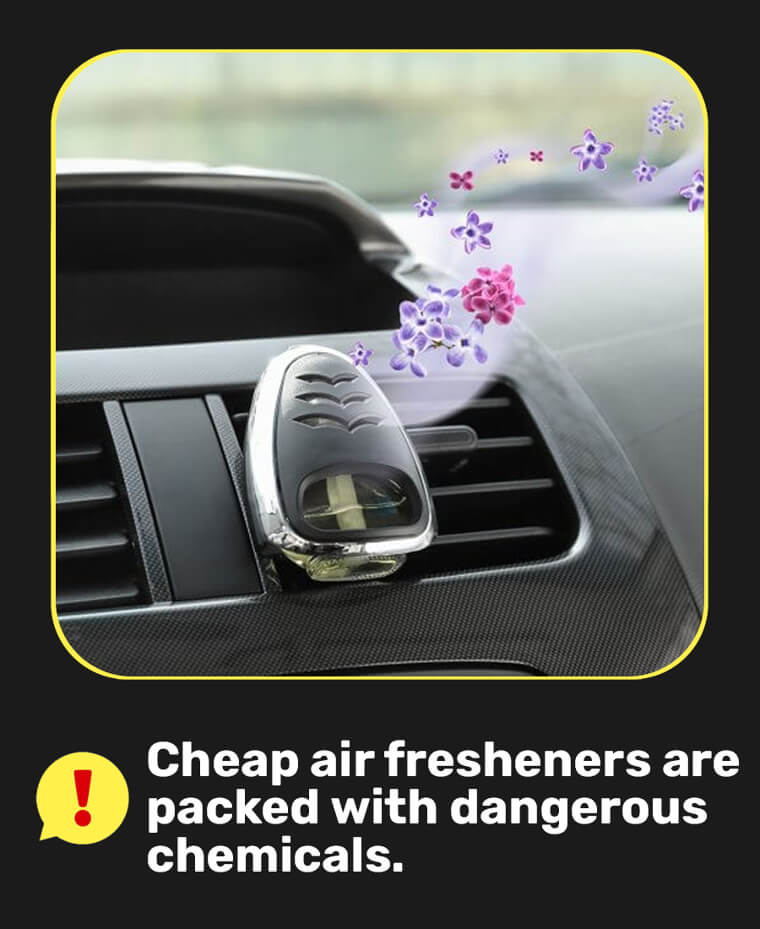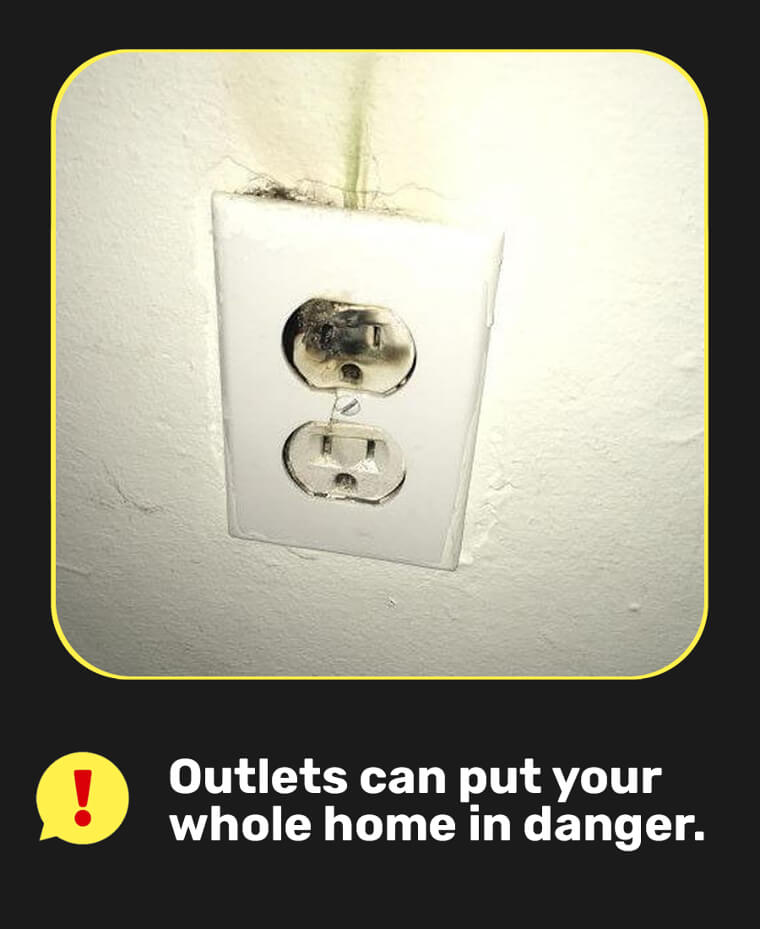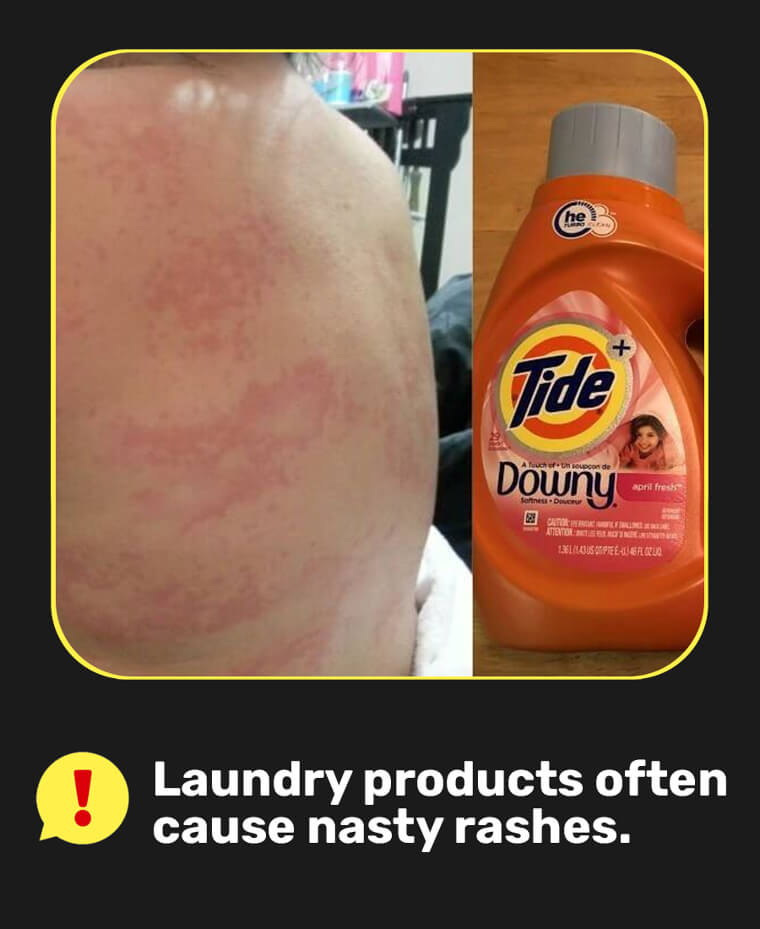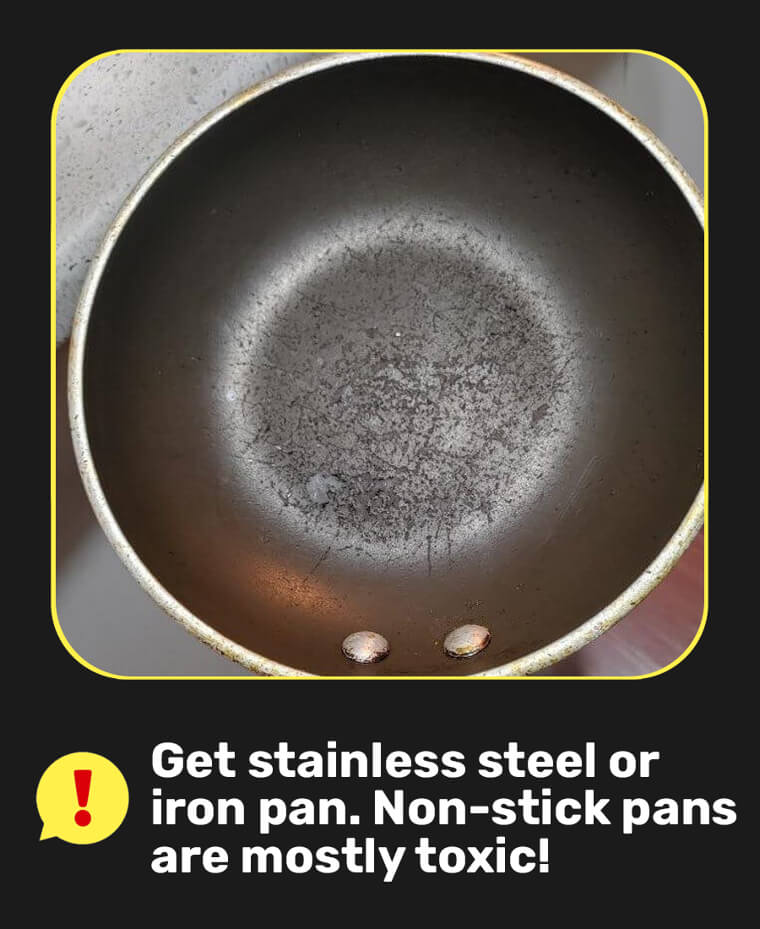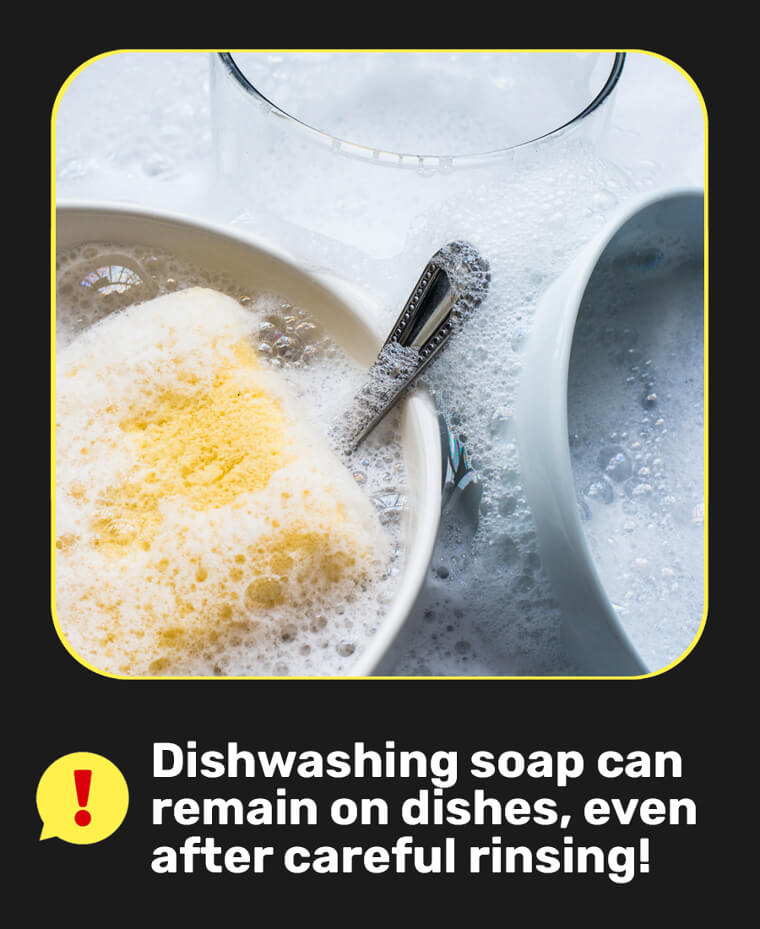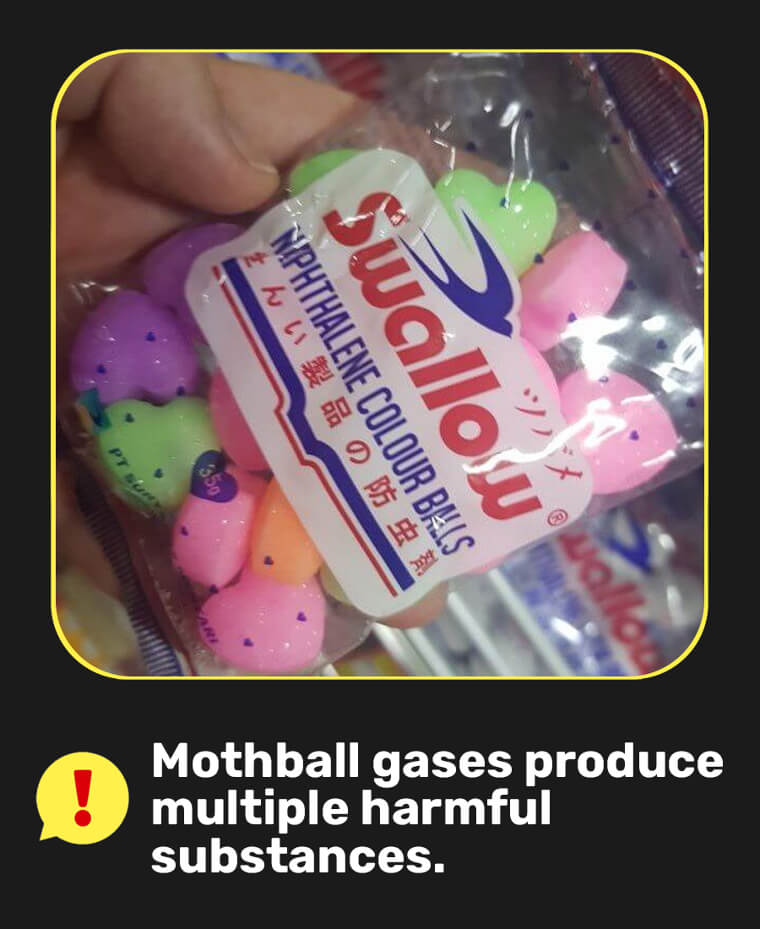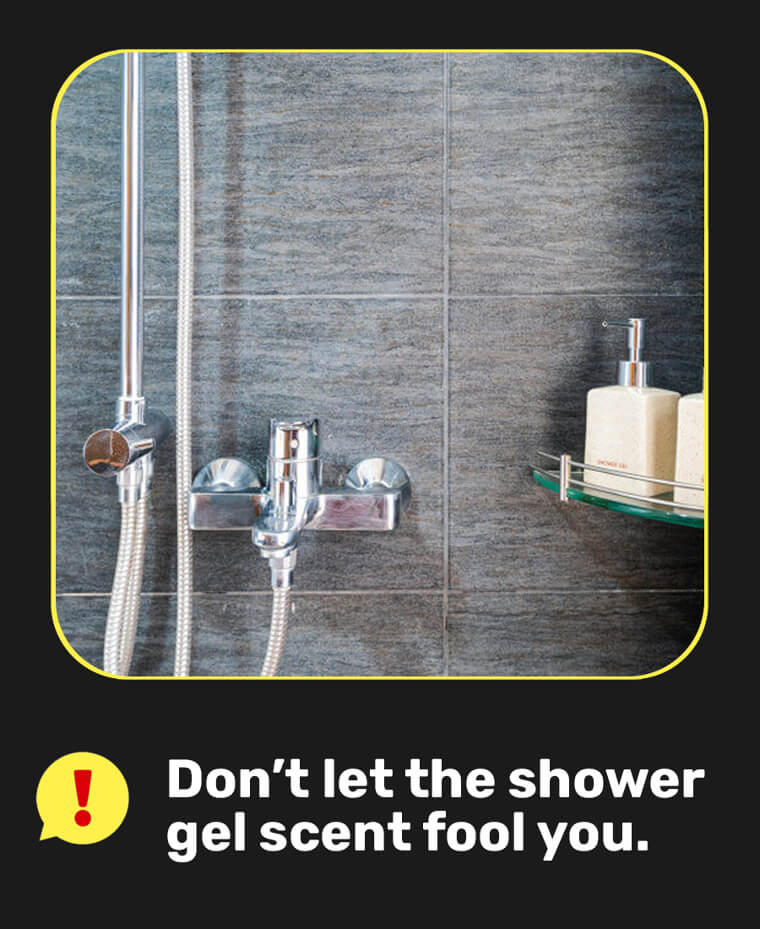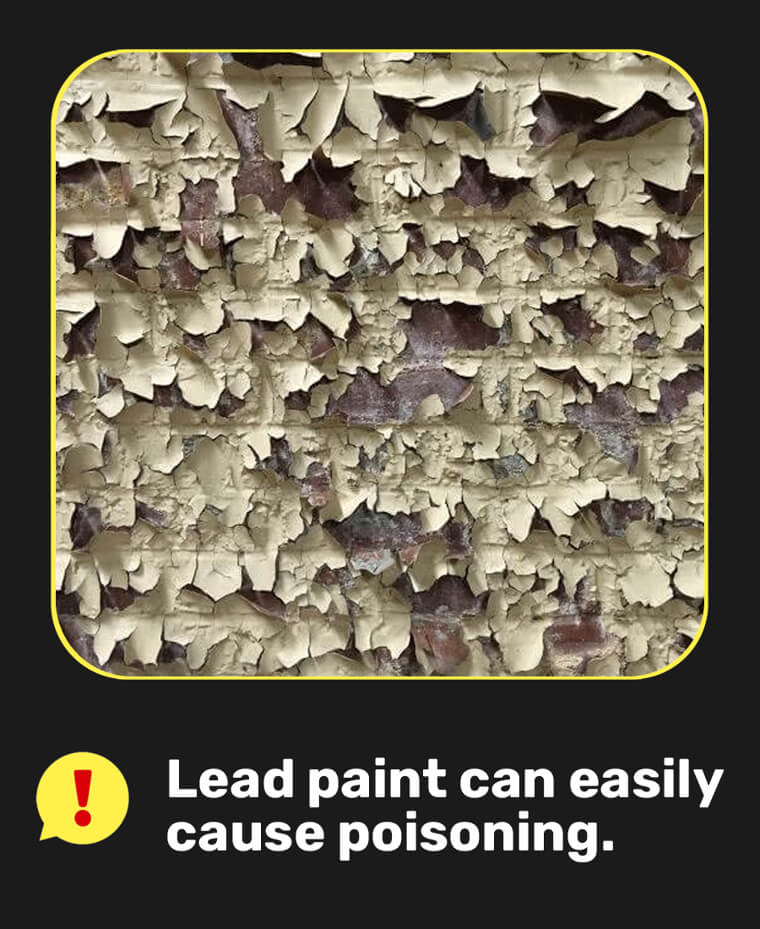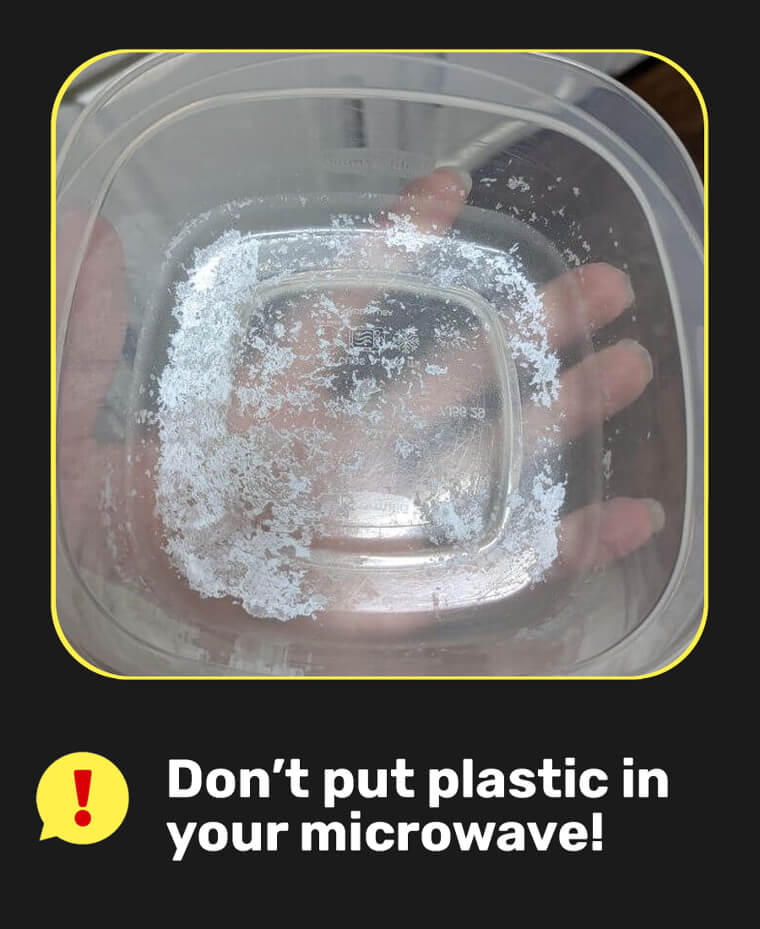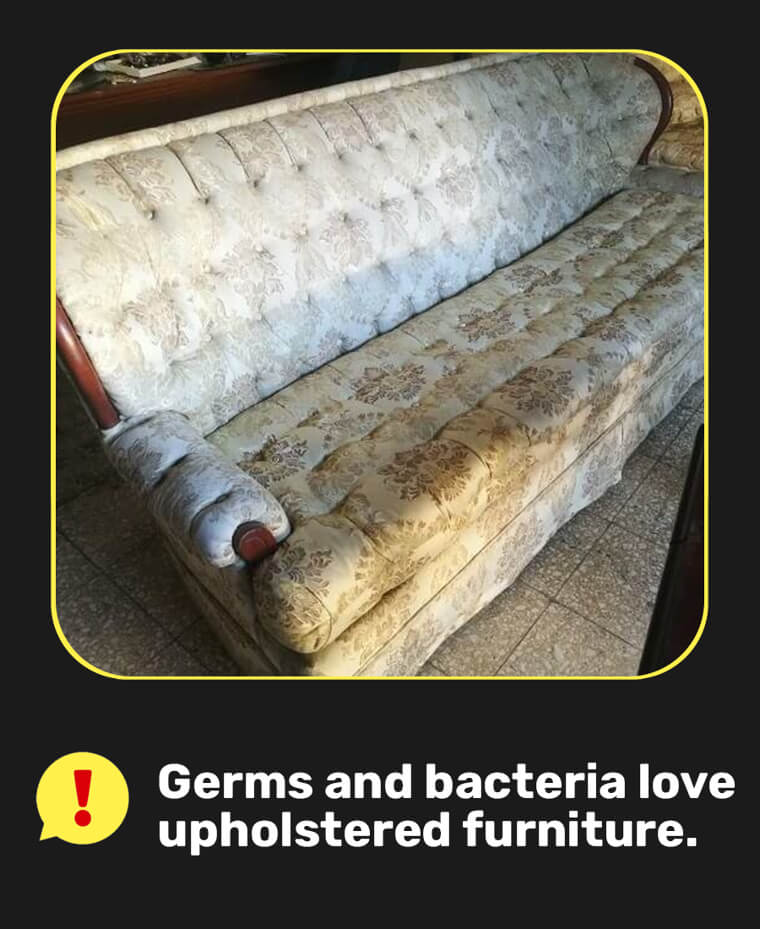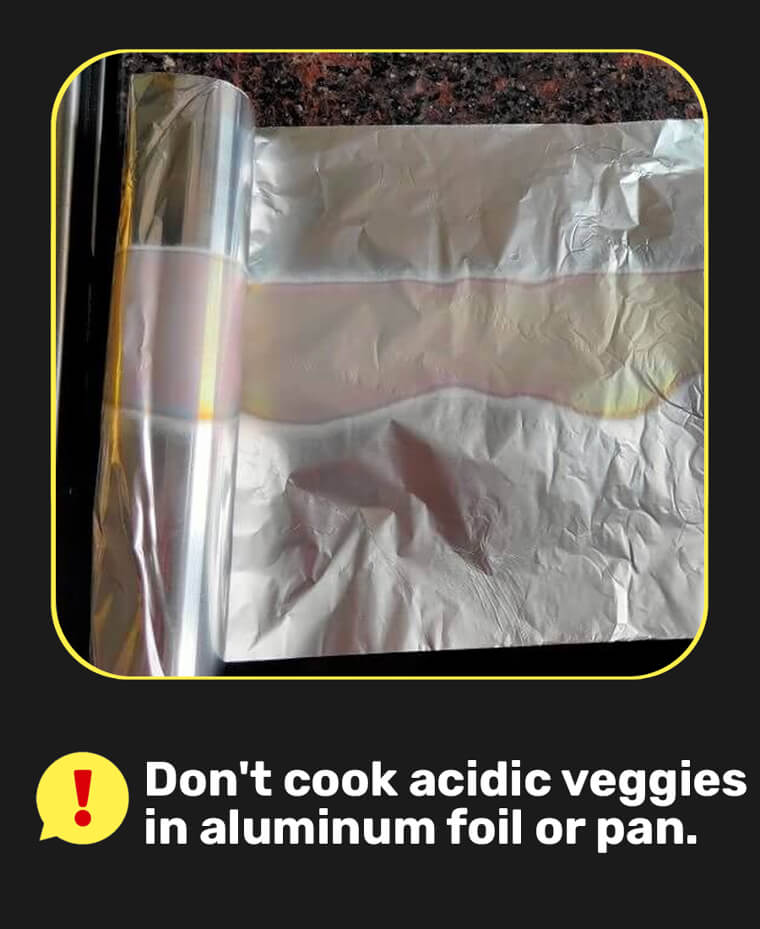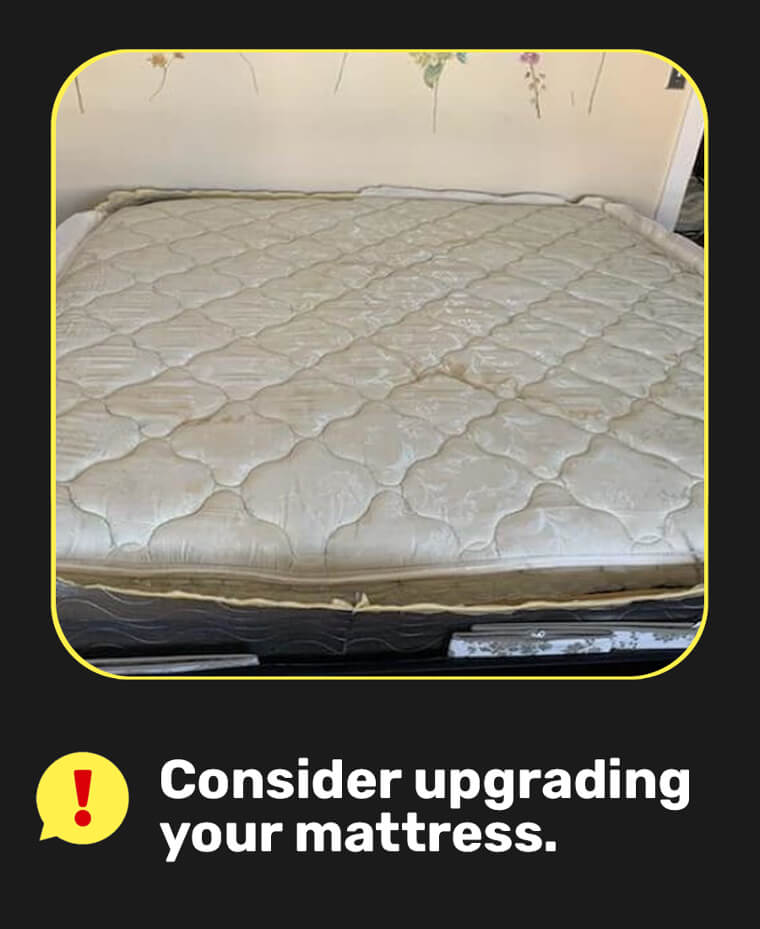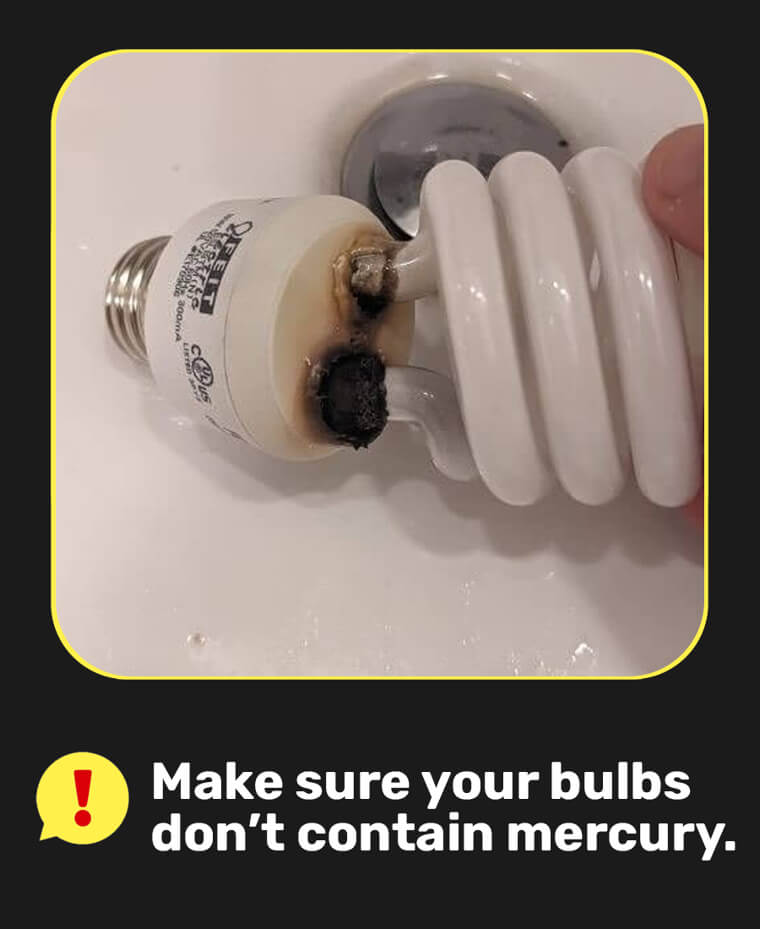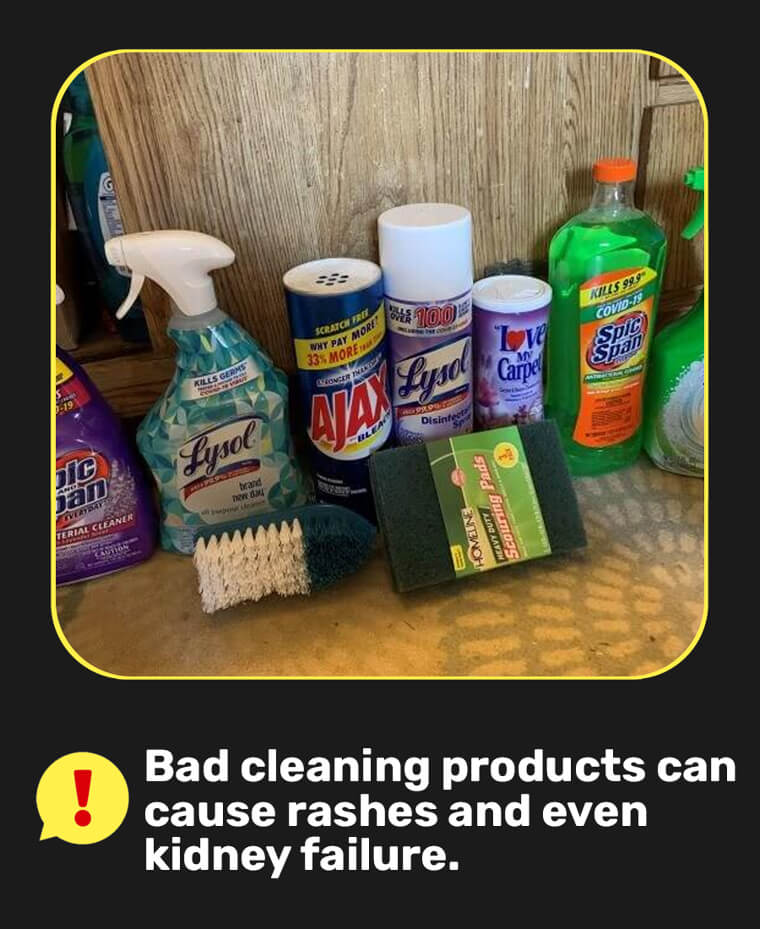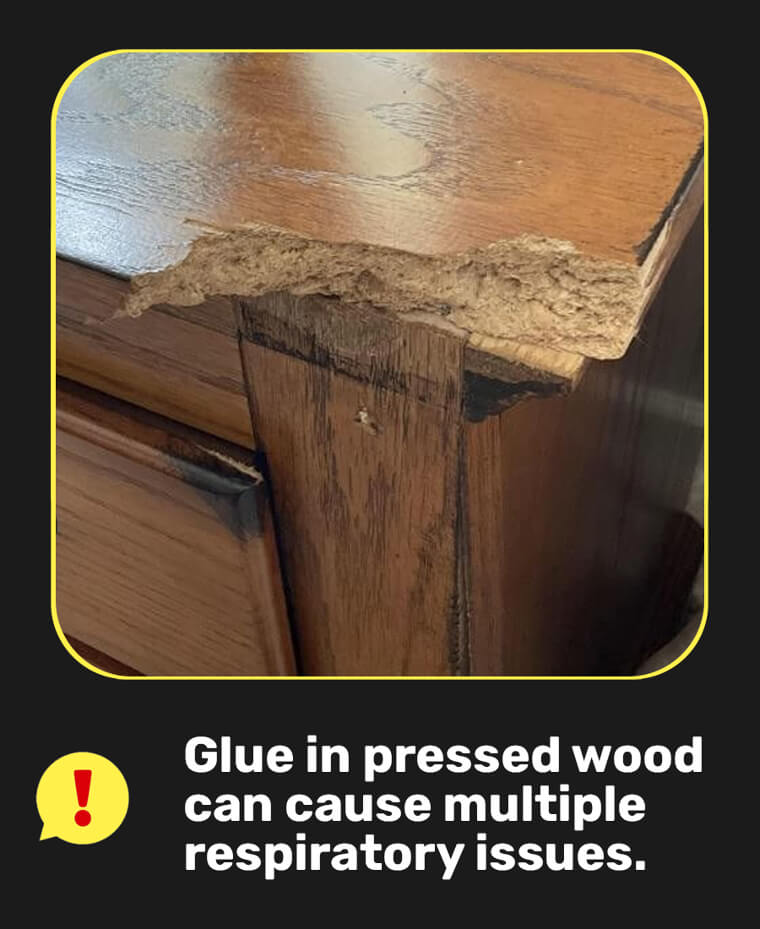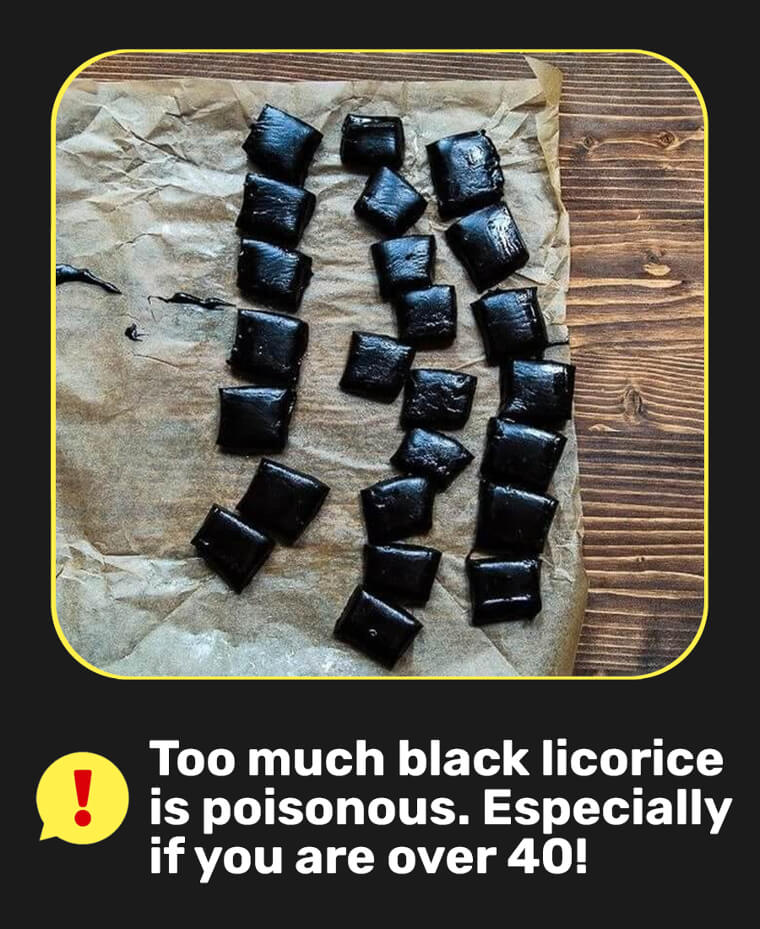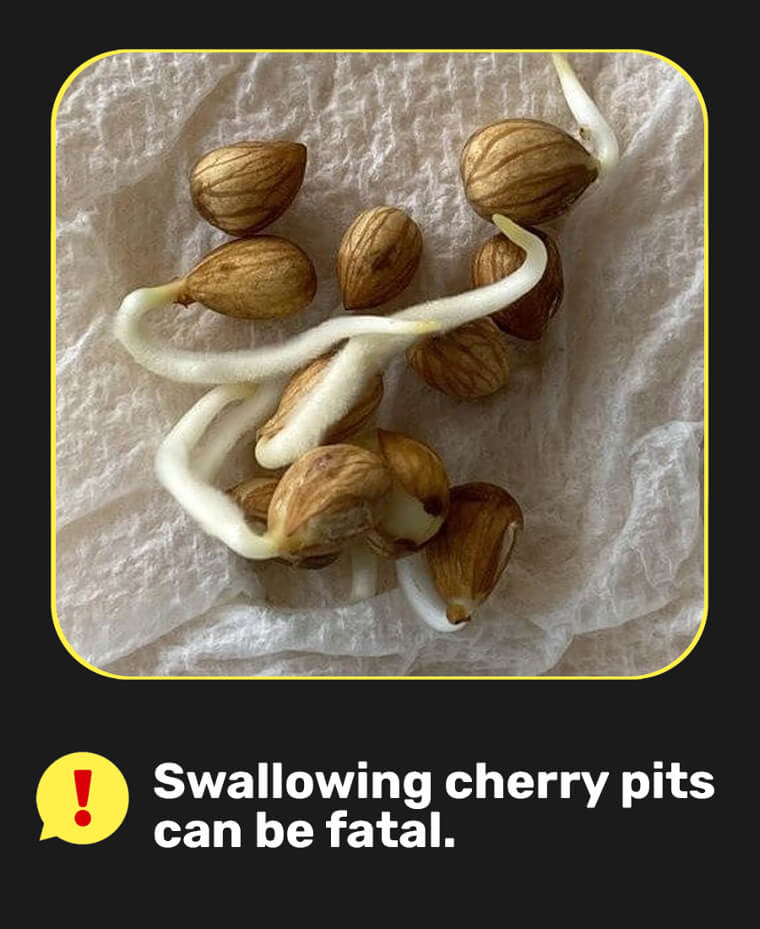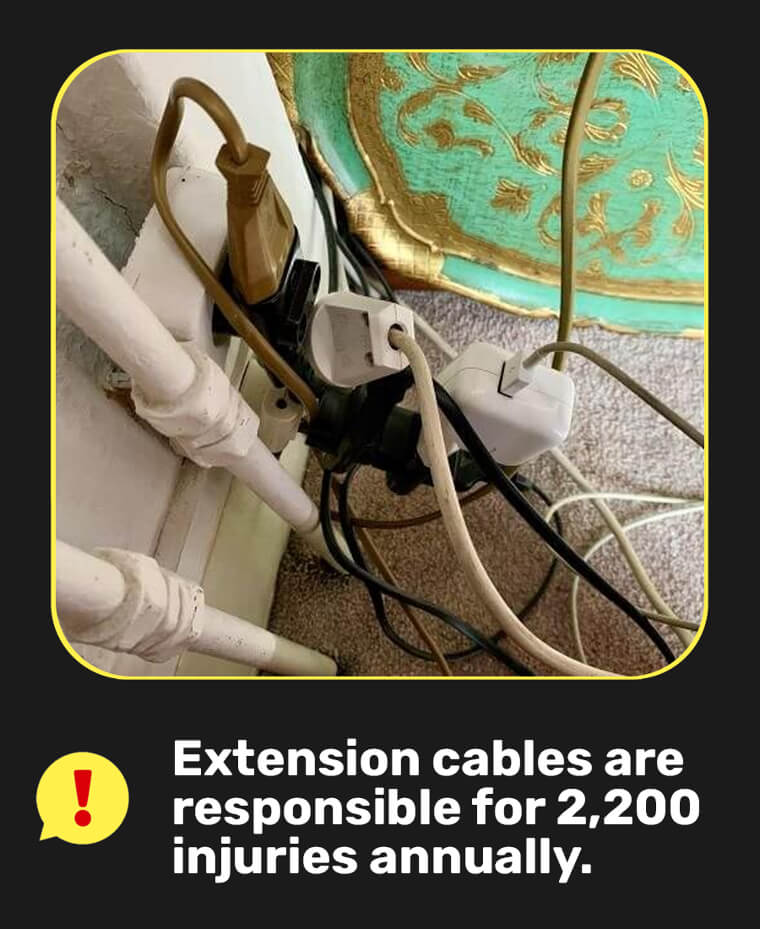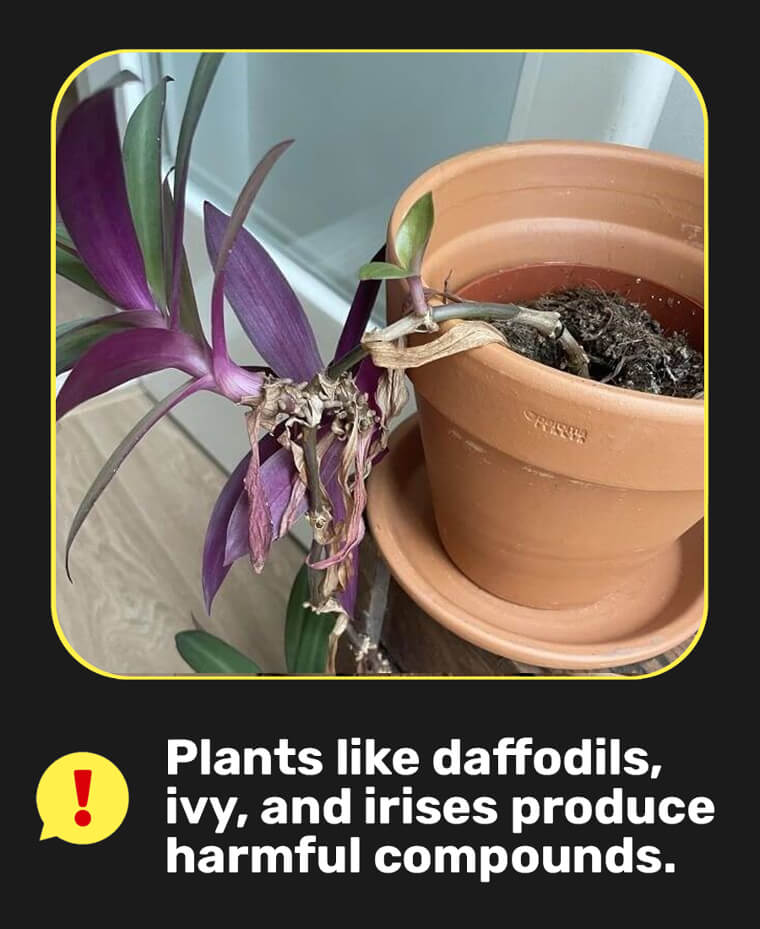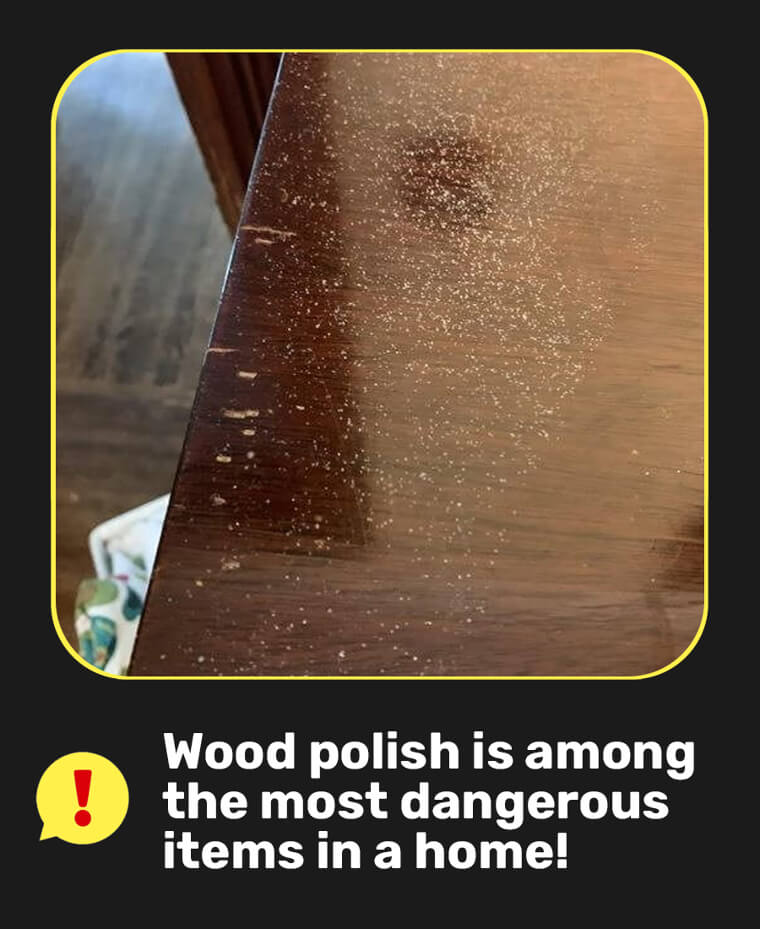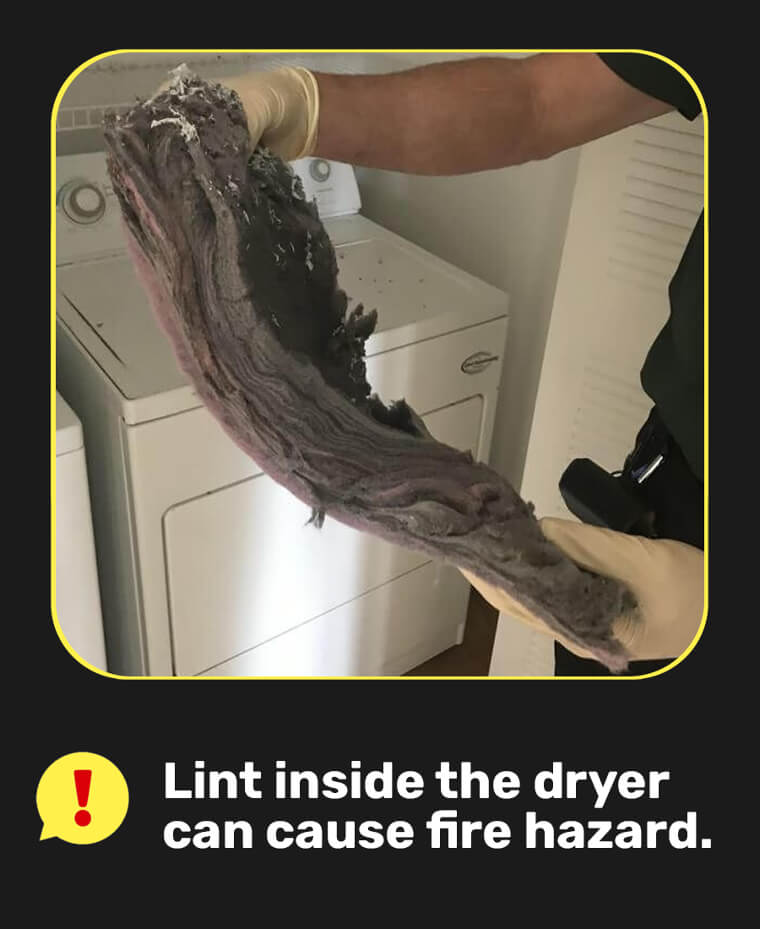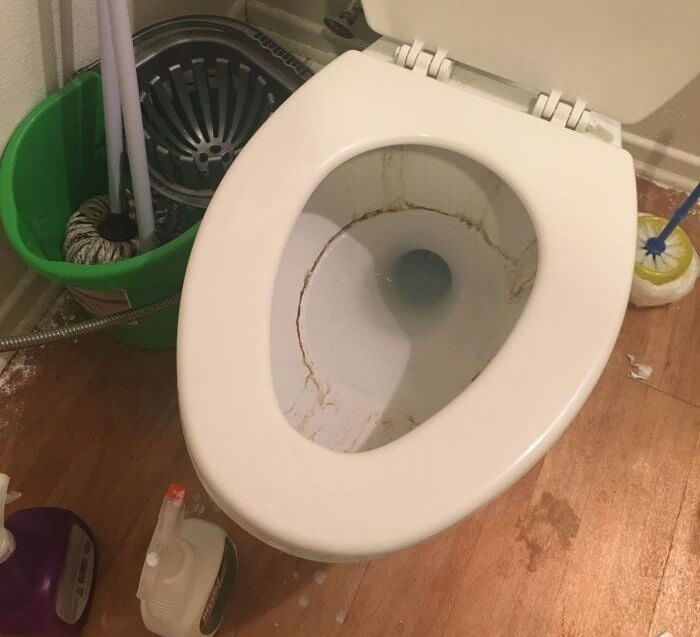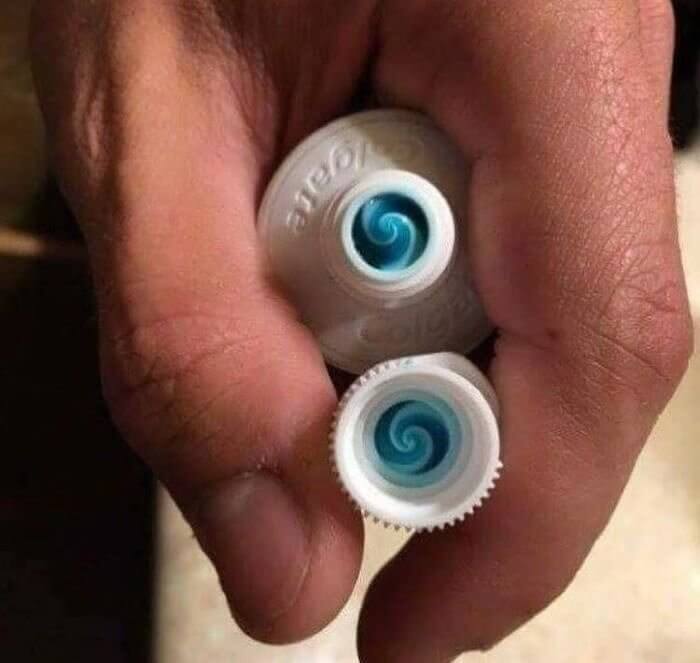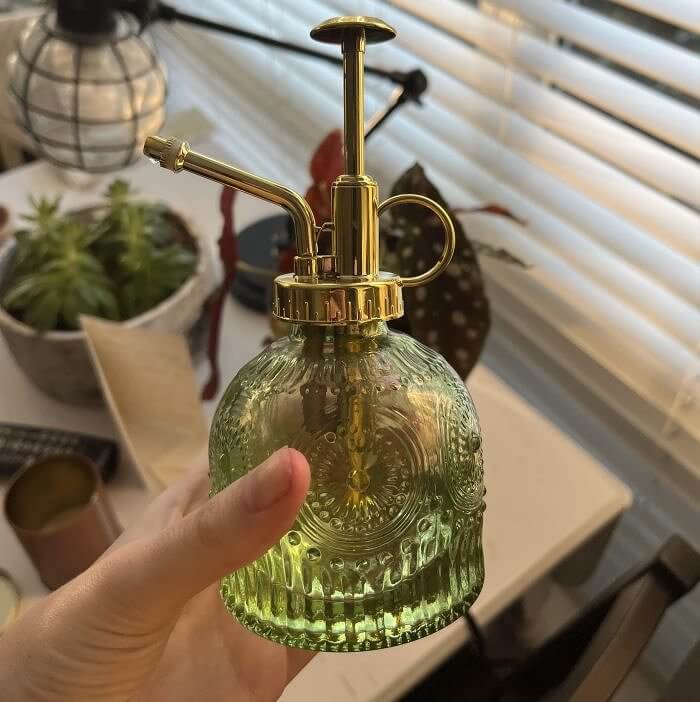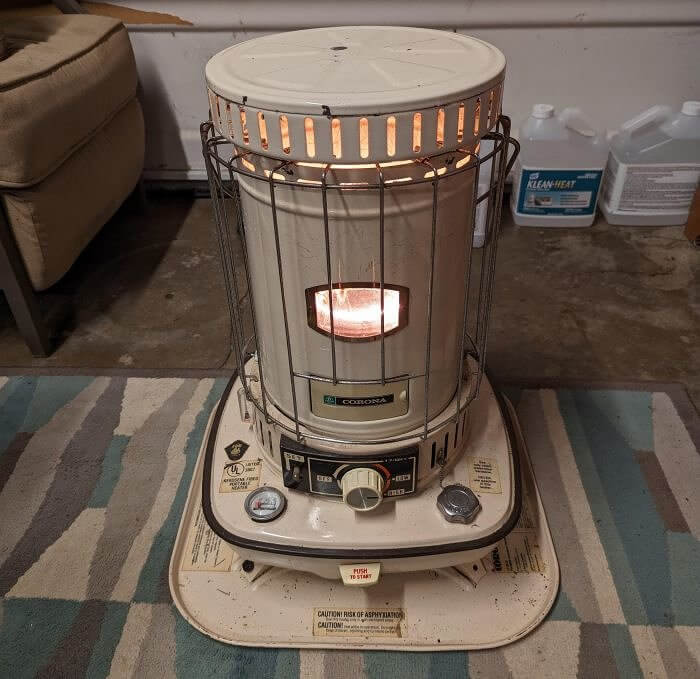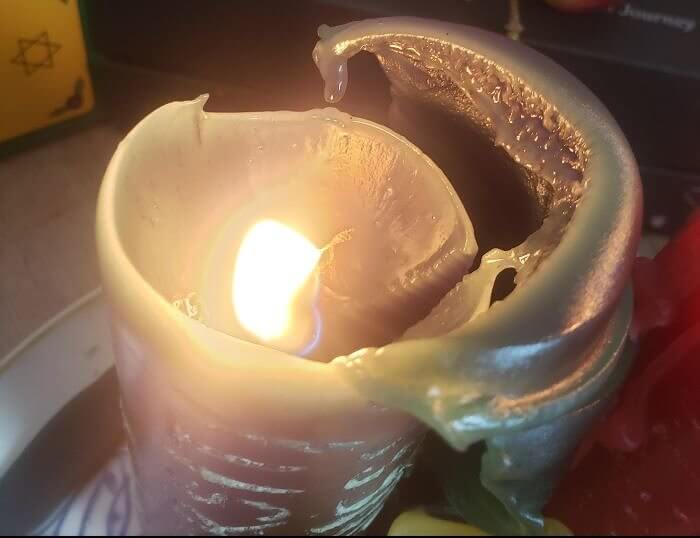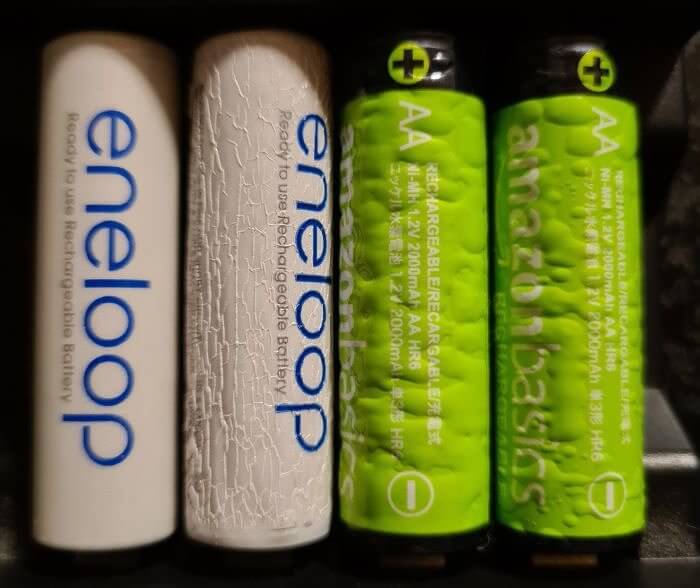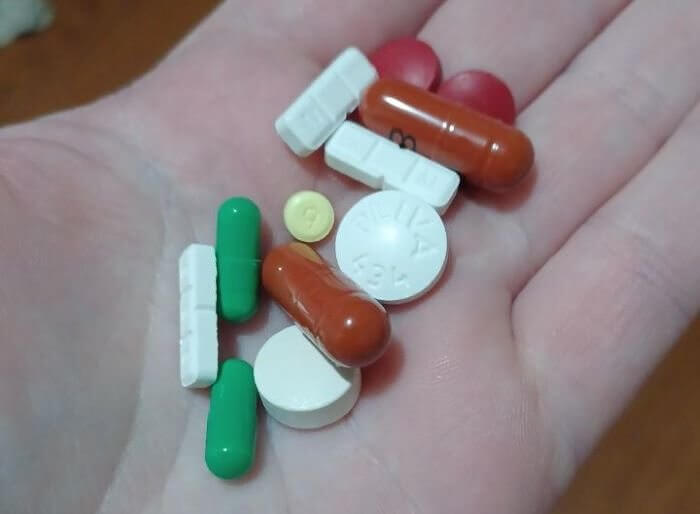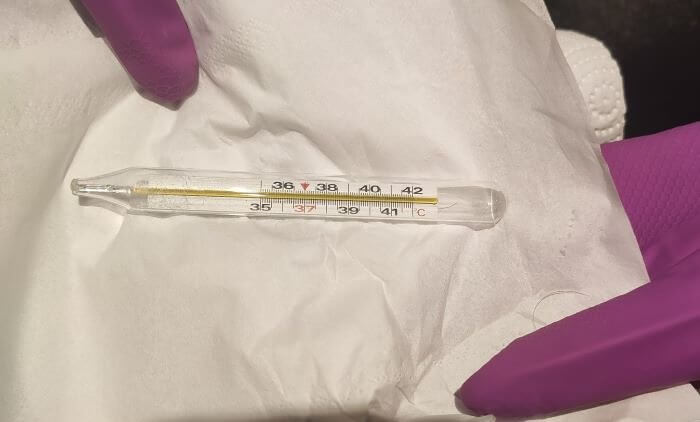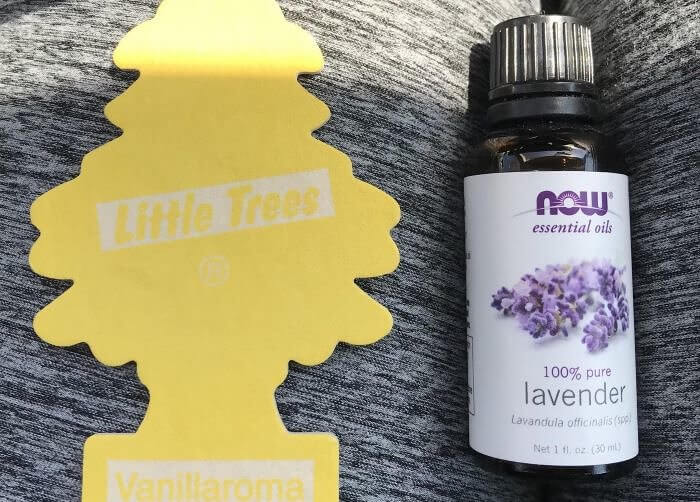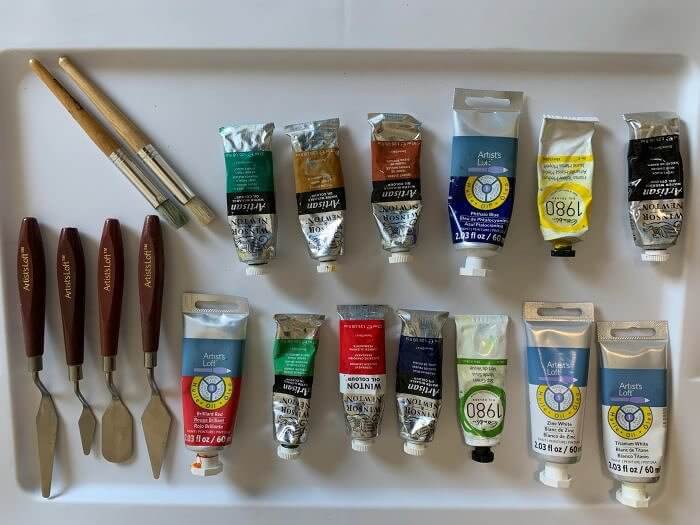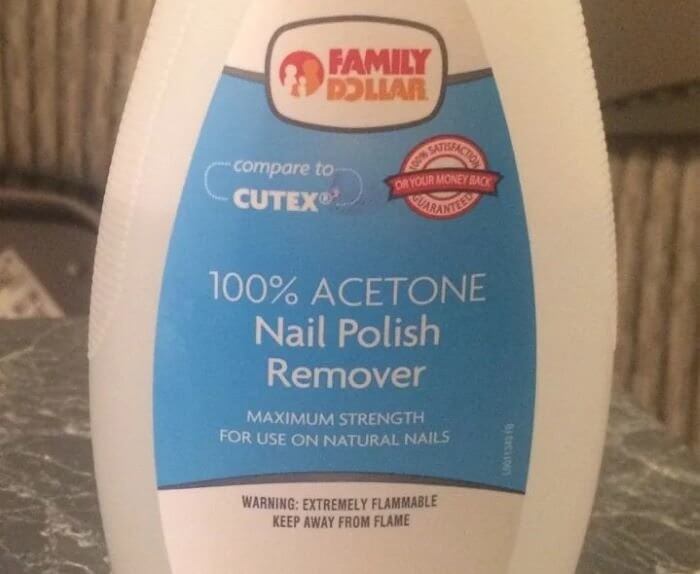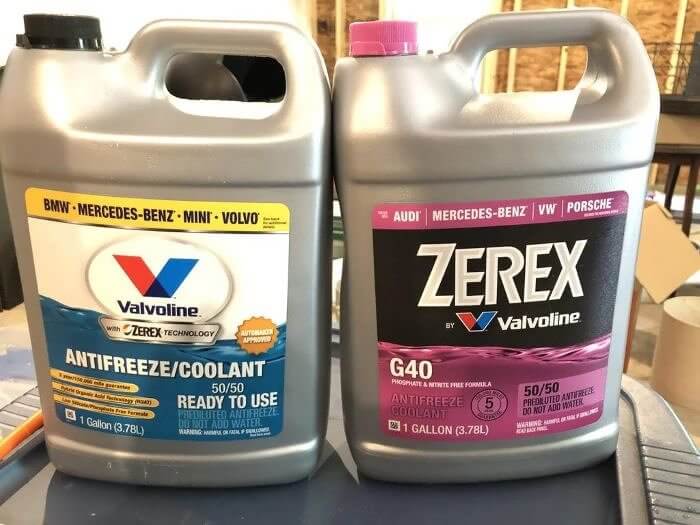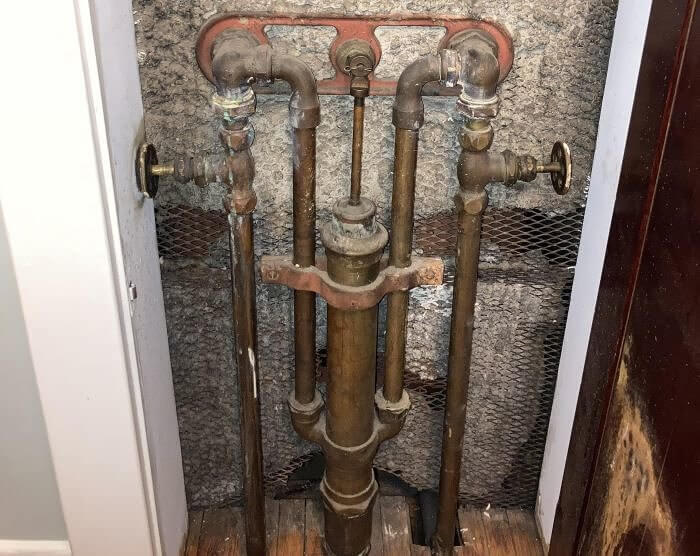As we go about our daily business, most of us are sort of aware that the environment we surround ourselves with could harm our health. Whether it's mild discomfort such as headache, coughing or sneezing or a more serious disease—the everyday items we've listed below could be the main underlying cause. From shower products and plastic water bottles to receipts handed to us when we pay for a cup of coffee, toxic chemicals are everywhere.
The good news is, it's easy to avoid them when we know what to look out for! So let's talk about all of these items and what exactly can go wrong if they're misused.
The good news is, it's easy to avoid them when we know what to look out for! So let's talk about all of these items and what exactly can go wrong if they're misused.
Stay Hydrated – But Without Petroleum!
We are all aware of how crucial it is to remain hydrated. From athletes to kids and everyday adults, getting enough water is essential no matter who you are. But did you know that single-use plastic water bottles are bad for your budget and your health? Plastics made from petroleum distillates contain toxins that seep from the bottle into the water. These toxins can cause neurological disorders, hormone disruption, and even cancer.
While choosing a refillable water bottle made of glass or stainless steel is much healthier than plastic, it will also save you money in the long run.
Be Careful With Your Fragrance Choice
Did you know that the fragrance from perfumes and colognes can cause anything from respiratory issues to hyperpigmentation? If you've ever gotten a headache when their rich aroma reaches your nostrils, there's a good reason why. Some perfumes are really hazardous! When sprayed directly onto the skin, they are absorbed into the bloodstream, delivering chemicals throughout the body. The very attractive bottles in which perfumes are sold disguise their toxic nature.
Experimenting with essential oils is not only a healthier alternative but also a much cheaper one. While perfumes and colognes are tempting, don't forget they're toxic!
Sunscreen Is Not Always A Safety Measure
Sunscreen is often recommended to protect skin against sun damage, cancer, and aging, but believe it or not, there is evidence that using it actually increases these risks. Sunscreen prevents your skin from absorbing vitamin D from sunshine, which is crucial to your health. It also has a number of dangerous chemicals that mess with hormones, cause cancer, and speed up the production of free radicals. Chemical-free sunscreen is a much safer bet.
While the effects of too much sun are well documented, and we must protect our skin, just the right amount of sun has many health benefits.
Store Receipts Are Toxic
When handed a receipt at the cafe or grocery store, you probably don't give it much thought, and why would you? Well, it turns out that this tiny piece of paper is a little devil in disguise. Toxic thermal paper coated with bisphenol A (BPA) or bisphenol S (BPS), is used for an estimated 93% of paper receipts. These chemicals are absorbed via the skin. Breast cancer, type 2 diabetes, and hormone disruption have all been related to BPA and BPS.
This paper is so bad for us that recycling paper receipts is not even recommended since the chemicals they contain could contaminate other paper goods.
Aluminum Is Not Meant for Your Armpits
Antiperspirants include aluminum-based compounds that create a temporary "plug" inside the sweat duct, preventing perspiration from reaching the skin's surface. And while most of us don't want to sweat profusely during an important occasion like a job interview, when used regularly and left on the skin around the breast, antiperspirants may be absorbed by our bodies and cause estrogen-like effects. Aluminum-based chemicals in antiperspirants can cause breast cancer because estrogen may cause breast cancer cells to multiply.
Natural deodorants don't block sweat glands or diminish sweating as antiperspirants do. Instead, they aid in the neutralization of your body's natural odors so you smell fresh.
Throw Out The Carpet, Here Is Why
While carpets can create a soothing, comfortable atmosphere in your home, did you know they harbor hidden horrors that can affect your health? Dirt, bacteria, and allergens are being housed in your carpet. The majority of carpets are constructed of synthetic fibers. These materials are popular among manufacturers because they are inexpensive and stain-resistant. Sadly, harmful chemicals are used in producing and installing these carpets. Long-term exposure to these chemicals might be hazardous to your health.
And while older carpets can be pleasing to the eye, there's a high chance that they have dust, pet dander, mildew, and germs embedded in their fibers.
Deep Cuts in Plastic Board? Throw It Out!
Plastic cutting boards are a must-have in every kitchen. And while it is unavoidable that they develop deep cuts from the blades of cutting knives, these cuts can house harmful bacteria and become a source of food poisoning. If plastic shavings from a worn cutting board could potentially find their way into your meal, you should throw that board away. The danger of chemical contamination is minimal with plastic cutting boards, but bacteria is always a worry.
Dishwashers are great for cleaning plastic cutting boards, but you should toss your one away if it develops deep grooves that are impossible to clean.
Read The Shampoo Label Carefully
When we choose shampoo and conditioner, we all want our hair to be smooth, silky, and easy to manage. But while hair products may give you visibly gorgeous hair, they might also be to blame for deteriorating the quality of your hair and perhaps even endangering your health. Companies that promise their hair-care products will make you look amazing neglect to tell you that they often include harmful substances like silicones, parabens, sulfates, and triclosan.
These chemicals remove your hair's natural oils, damage the hair shaft, and may even cause cancer. It's time to find more natural, healthy hair products.
Air Fresheners Are Not Safe for Children And Pets
There is an air freshener for every need, whether you want your environment to smell like freshly laundered clothes or a meadow at sunrise. But, did you know that your air freshener can harm your health? While "Hawaiian breezes," "fresh lemon linens," and our other favorite air fresheners may seem harmless, they actually contain a ton of dangerous chemicals that we shouldn't expose anybody to, particularly our children or pets.
It's time to switch to non-toxic alternatives when it comes to freshening up your environment. You may be surprised by the dangers that air fresheners may pose.
Keep a Close Eye on the Outlets!
Nowadays, most homes have hundreds of appliances and gadgets using electrical outlets. Every electronic device, from phones to TVs to video game consoles to lights, seems to have some kind of charging port or socket attached to it. Moreover, you endanger the safety of your house and loved ones if you use too many appliances at once. Potential for wires to overheat and cause a fire has never been higher.
If you are unsure about the total amount of electricity being used by your devices, call a professional electrician. Make your house as safe as possible and protect it against electrical hazards.
Laundry Products Can Cause Mysterious Rash
While there is a rising awareness of dangerous ingredients in our food, cosmetics, and personal care goods, laundry products are sometimes overlooked. Conventional laundry detergents and fabric softeners can leave chemical residues on garments that are easily absorbed by the skin, much like a sponge that soaks up water. These chemicals may deplete natural oils from your skin, causing anything from minor discomfort to serious allergic reactions like rashes or spots.
Synthetic perfumes, optical brighteners, and other harsh substances are often to blame for side effects such as irritation, inflammation, or eczema flare-ups on sensitive skin.
Take Good Care of Non-Stick Pans
While nonstick pans make cooking and cleanup a joy, they can also be harmful if the coating becomes scratched or overheated and tiny bits of it end up in your food. The chemical polytetrafluoroethylene (PTFE) is used to cover nonstick pans because of its lack of sticking qualities. When PTFE-coated pans get very hot, they give off gases that can be harmful. Avoiding potential health problems is easier when using well-maintained nonstick cookware.
If you must use them, you shouldn't heat your fluorinated pans any higher than recommended if you don't want the coating to flake off or split.
Avoid Abrasive Dishwashing Liquids
The dish soap you're using is really toxic, not just potentially dangerous. There are at least 8-10 substances in common dishwashing liquids that may be harmful to your health. And not only the health of the person who washes the dishes but the health of the whole family. Dishwashing soap can be quite abrasive, and a layer of it remains on your plates even after you rinse them, and then it dries.
Fortunately, there is an option that is safer and won't harm the environment or your health when washing dishes. Green, non-toxic dish detergent is available at most stores.
Trouble With Headaches? This Might Be Why!
Mothballs have been used to keep moths and other pests away from garments for many years. They are a type of pesticide since they include naphthalene or dichlorobenzoic acid, despite their widespread use. We now know that these substances are harmful to both people and animals. These compounds are solids at room temperature before slowly turning into gases and emitting fumes into the air. You might not be aware that you are inhaling harmful substances.
Whether you inhale the fumes or come into contact with the chemicals directly on your skin, exposure to these substances can be dangerous for the whole family.
The "Wave" in Microwave
Electromagnetic radiation is used in microwave ovens. The food is heated as a result of the friction and vibration caused by the microwaves' impact on the water molecules in the meal. Radiation leakage from malfunctioning microwaves has the potential to be quite dangerous. Burns to the skin or cataracts can result from prolonged exposure to microwaves. Door seals that are broken or worn out are the most frequent source of microwave oven leaks.
This may happen as a result of abuse, food buildup, or simply age. Regular testing can help you find out if your microwave is dangerous.
Shower Gel Smell Can Easily Trick You
When it comes to the potentially dangerous substances included in shower gel, the vast majority of people are either unaware of them or just don't care. It's no secret that many commercial body cleansers include harsh chemicals like sodium lauryl sulfate and artificial preservatives that can irritate the skin. Long-term exposure to these substances is linked to cognitive decline, hormone imbalance, and cancer. Never use shower gel without first reading the label.
Always remember the components that might be hazardous to your health, and don't let marketing, pretty packaging, or a pleasant scent influence you when selecting a body product.
Don't Expose Children to Lead Paint
Children are at increased risk of lead poisoning because their developing bodies absorb greater amounts of the metal than mature adults. Their developing brains and nervous systems are more susceptible to the toxin's harmful effects. Despite popular belief, lead paint is still present in many homes that were constructed before 1978. Also, it is vital to know that peeling lead paint is a frequent wall condition in older houses and releases inhalable, dangerous lead particles.
You shouldn't sand, scrape, or burn lead-based paint since that will release the toxins of the poisonous metal. Instead, contact a specialist to have it removed.
Never Put a Plastic Container in Your Microwave
Although plastic wraps and containers are frequently used in kitchens to preserve food, when cooked in the microwave, they run the risk of leaking phthalates and bisphenol-A (BPA) into the food, especially if the meal has a higher fat content. These two substances are recognized as endocrine disruptors, which means they have the power to alter human levels of estrogen and testosterone as well as the growth of the brain and reproductive organs in fetuses.
When it comes to cooking food in plastic containers, temperature and duration are also important considerations. To minimize the leaching problems, cook your meals in ceramic.
Used Upholstered Furniture Is Simply Not Worth It
Couches and other upholstered furniture can get a lot of germs, fungus, and dust mites after being used for a long time. Dust mites are tiny insects whose waste feeds millions of bacteria, fungi, and other organisms. Dust mite poop may cause sinus problems, sleepless nights, headaches, watery or itchy eyes, sneezing, and tiredness. Skin allergies, hay fever, and severe respiratory conditions like asthma can all develop due to exposure to these chemicals and microbes.
To keep nasty dust mites at bay, you should hire a professional cleaner at least once every six months to maintain your furniture in the best possible condition.
Use Aluminium Foil With Caution
Although it has been used for over a century and is the perfect material for wrapping and storing food, aluminum can be harmful if it seeps into our food through aluminum foil or pans. Some metal enters the meal when acidic vegetables like tomatoes are cooked at high temperatures in aluminum foil. But thankfully, healthy individuals can effectively eliminate the body's tiny quantities of aluminum. Still, it has been suggested that aluminum in the diet may play a role in the development of Alzheimer's disease.
Even though cooking can cause tiny bits of aluminum to get into food, aluminum foil is thought to be safe. Aluminum products should be used in moderation.
Your Mattress Won't Last Forever
There is evidence that mattresses can give off-gassy chemicals called volatile organic compounds (VOCs) in very small quantities. Regrettably, investigations on eight different types of polyurethane mattresses suggest that your body heat increases VOC emissions from your mattress. But no need to panic, you can stay on your mattress for the time being. Researchers found that predicted dosages of most VOCs were far lower than those that potentially cause health consequences.
Researchers noted that after accounting for age in exposure estimates, certain chemicals did approach levels of concern for newborns and young children. It's time to upgrade your child's mattress.
Carefully Choose Your Lightbulb
Several Compact Fluorescent Light variants are intended to replace standard incandescent bulbs that fit into many popular light fixtures, such as table and floor lamps. These energy efficient bulbs, utilize around one-quarter of the energy of ordinary incandescent bulbs. CFLs produce relatively low amounts of UV light, so how can they be dangerous? Mercury is present in these bulbs. Although they do not release mercury when lit, it might be exposed if the exterior glass tube breaks.
Remember that mercury is very dangerous and highly toxic. It can be damaging to people's health and the environment. Make sure you handle them with care!
Cleaning Products Are Mostly Harmful
Cleaning is a necessary aspect of our daily life. Yet there are clearly some significant physical and psychological advantages to keeping your environment clean. Cleaning products, on the other hand, might offer certain health hazards. There are various harmful compounds contained in cleaning products that might harm your health if you use them. It may cause a number of symptoms from skin irritation and sore throats to more serious problems such as liver and kidney damage.
Fortunately, by choosing more natural, safe products and carefully following manufacturer recommendations when using cleaning solutions, you may limit your exposure to any of these risks.
Avoid Sitting Near the Laser Printer
Laser printers are becoming more popular with home users and small businesses. Recent research, however, has raised concerns regarding the negative consequences of using a laser printer on human health. This has sparked a fresh round of controversy among printer consumers about health and safety rather than pricing and performance. Laser printers are hazardous to our health if we sit too close to them or if you do not take steps to renew their toner cartridges.
Laser printers have been linked to heart and lung problems, as well as cancer. Some of the problems they cause are the same as those caused by cigarette smoke.
Pressed Wood Is Okay - Glue However...
Pressed wood is considered man-made wood. Composite materials such as particle board, fiberboard, and insulation are included in this wood and are all glued together. The US Environmental Protection Agency (EPA) identifies urea-formaldehyde as the primary indoor source of formaldehyde emissions from the glue used to secure the wood. Formaldehyde can cause irritation of the eyes, nose, and throat, wheezing and coughing, tiredness, a rash on the skin, and severe allergic reactions.
If you have pressed wood in your home, use air conditioning and dehumidifiers to lower humidity levels. Keep the room adequately aired to prevent formaldehyde accumulation.
Throw Away Potatoes If They Go Green
You should not consume potatoes that have been left on your counter long enough to turn green. Potatoes that are green under the skin are slightly poisonous. The component solanine, which naturally arises in potatoes as they age and start to germinate, is what gives them their green hue. Most people can take solanine in small doses. The amount found in one or two servings of green potatoes is not enough to harm you.
Nevertheless, that slight poisoning might cause nausea, vomiting, diarrhea, and, on rare occasions, fever. If you happen upon a green potato while preparing a meal, you should discard it.
Gas Is the Least of Your Worries While Eating Beans
Although kidney beans are a common pantry item, they are deadly when uncooked and dried. The poisons known as lectins are present in kidney beans, particularly red kidney beans. The effects of eating as little as four or five uncooked red kidney beans include nausea, vomiting, and diarrhea. The lectins are eliminated when dried beans are soaked for at least 12 hours and then cooked for at least 10 minutes.
Kidney beans in cans can be consumed without anything to worry about since they have already been soaked and cooked. Never eat raw, dried kidney beans.
Black Licorice Is Bad For Your Heart
Are you a licorice lover? If so, then the next time you tuck into a bag of black licorice, you're actually munching on poison. Glycyrrhizin, a substance found in the licorice root, can alter a person's potassium levels. But if you use black licorice in moderation, you shouldn't have any health issues. If you consume around two ounces each day for at least two weeks, you may feel the impact of the glycyrrhizin.
People over 40 or those with heart disease or high blood pressure are more likely to have this problem. The issues often disappear after a person quits consuming black licorice.
Don't Swallov Cherry Pits
If you're anything like me, you probably can't wait for the cherry season to begin. But did you know that cherry pits are toxic? Cherry pits contain a lot of cyanogenic glycosides. If used in excessive amounts, this substance can be fatal. It's a good practice to remove cherry pits from the fruit before blending or chopping, even though cherry pit poisoning is highly uncommon—you'd need to chew several pits to get a lethal dosage.
Make sure to tell your kids to spit out the pit the next time you take home this delicious fruit. Cherries have always been a family favorite.
Extension Cable Is Dangerous In Many Ways
Although an extension cable by itself is safe, how it is frequently used might not be. Many individuals plug in as many devices as they can without realizing the cables have a voltage capacity that should not be exceeded. This overload of power greatly increases the risk of a fire. The CPSP estimates that extension cables are to blame for 4,600 residential house fires every year, which result in 70 fatalities and 230 injuries.
Additionally, it predicts that each year there are about 2,200 injuries brought on by shock from extension cables. Read the safety information carefully when you purchase an extension cable.
Not Every Plant Is Good For Your Home
This may come as a surprise, given that houseplants are commonly believed to help cleanse the air. However, if you have kids or dogs running around the house, you should know which plants to avoid. Experts say that to protect themselves from predators like insects, plants like daffodils, ivy, and irises produce harmful compounds. Therefore, keep them where children and dogs can't get to them if you keep them at home
While plants are beautiful and healthy to have around, nature has provided ways to protect them against insects. You should be aware of this if you have young children, especially.
Pizza Box Can Be More Harmful That Pizza Itself
Chemicals found in pizza boxes are hazardous to your health. They include PFASs, which are also found in carpet cleaners and microwave popcorn packets. The transparent covering on your pizza box prevents grease from seeping through the cardboard box. This coating has been connected to cancer and even birth abnormalities. Avoid using these cardboard boxes, or remove your pizza from the box it came in and cover it with foil to keep it warm.
Pizza is one of life's little pleasures, so to hear that the box it arrives in is slightly toxic is a real bummer. The next time you have pizza, eat it off a plate.
Wood Polish Can Cause Skin Cancer
Ammonia, benzene, and phenols are among the compounds found in wood polish, along with VOCs. As a result, it is among some of the most dangerous items in a home. Oil-based polishes can soak into your skin and cause skin cancer since they are inflammable and can cause skin irritation. Aside from nose, throat, tongue, and ear pain, using polish can also make you feel lightheaded and have trouble breathing.
Containers for polish and wax should be kept safely out of children's reach. Before using polish and wax packages, carefully read the directions on them.
Empty The Lint Trap in Your Dryer Regularly
The clothes dryer can be a real lifesaver during the winter months when getting anything dry is difficult, especially if you have a large family. And although dryer lint by itself isn't harmful, its accumulation may very easily become a major fire risk! The U.S. Fire Administration reports that there are about 2,900 dryer fires per year. They calculate that failure to keep the dryer clean and lint-free contributed to 34% of those fires.
Every time you use your dryer, empty the lint trap and routinely vacuum the inside of your dryer. You don't want to create a fire hazard.
You Might Need a Gas Mask to Clean Your Toilet
Cleaners for the bowl of your toilet that you buy at the store are often quite acidic, which allows them to dissolve stubborn stains and deposits in your toilet. However, the corrosive components that are used to clean your toilet bowl may also inflict burns on your skin and eyes. They can generate caustic vapors if used with other types of cleansers, which you should never do as a general rule.
You can keep your toilet in pristine condition with the help of a wide variety of risk-free natural substances. Steer clear of cheap store-bought toilet bowl cleaners.
Good for Teeth, Bad for Your Stomach
Most toothpaste sold in stores contains the following caution: "Seek immediate medical help if you ingest toothpaste." Ingesting a lot of toothpaste can result in stomach discomfort, intestinal problems, and if the toothpaste includes fluoride, seizures, breathing difficulties, and other unsettling side effects. Ensure that everyone in your family, especially the younger members, understands how to put the proper quantity on their toothbrushes each morning. About the size of a pea is a good measure.
The good news is that, when used properly, toothpaste is completely safe. Also, urge everyone to completely rinse their mouths after brushing. This way there should be no complications.
Suit Up Before You Spray Up
A fungus is probably to blame if you see odd spots or growths with odd colors on your indoor plants. To control fungal issues on plants, a range of antifungal agents can be used. Copper and sulfur, both hazardous substances, are found in common antifungal agents. These substances can be used indoors, but extreme caution must be taken to adhere to all safety precautions. Keep them away from your mouth and wear protective gear.
Moving the treated plants to a location where pets or kids cannot disturb them would be best for the plants and the people surrounding them.
Reconsider Your Heating!
Kerosene heaters, when not properly vented, can pose a substantial health hazard by releasing dangerous gases, including nitrogen dioxide and carbon monoxide. These gases can build up in confined spaces, leading to potential respiratory issues and, in the case of carbon monoxide, serious illness or even death. It's essential for users to ensure adequate ventilation whenever a kerosene heater is in operation. Additionally, safety precautions such as keeping the heater well-maintained and not leaving it unattended can help reduce the risk of fire and gas-related incidents.
In summary, the use of kerosene heaters demands caution due to potential harmful gas emissions. Ensuring proper ventilation and adhering to the manufacturer's safety instructions can help mitigate risks associated with their use.
Play With Toys, But Not Your Life
Certain toys, particularly those made overseas or older models, may contain harmful substances such as lead based paint or phthalates. Lead is a potent neurotoxin, particularly dangerous for children as it can impact their developing brains leading to cognitive impairment and behavioral issues. Phthalates, often used to make plastics flexible, can interfere with hormonal function and are associated with several adverse health effects, including potential impacts on children's development.
In essence, while toys provide entertainment and learning opportunities, it's crucial to ensure their safety. Careful selection, particularly avoiding older or low-quality toys, can protect children from potential health hazards.
More Romance, Less Chemicals
Certain candles, particularly those scented with synthetic fragrances, can release harmful chemicals into the air when burned. These chemicals can contribute to indoor air pollution, potentially leading to allergic reactions or respiratory issues. Furthermore, some candles, particularly older ones, have wicks that contain lead. When these candles are burned, the lead can be released into the air and inhaled, leading to potential lead poisoning, which can have serious health consequences.
In summary, while candles can create a relaxing atmosphere, it's important to choose them wisely. Opting for unscented candles or those made from natural materials, with lead-free wicks, can help ensure a healthier indoor environment.
Tech's Fountain of Youth, User's Shortcut to Retirement
Batteries, particularly those containing heavy metals such as lead, cadmium, and mercury, can pose significant health risks if they leak or are improperly disposed of. These metals are toxic and can contaminate soil and water, posing environmental hazards. Moreover, if accidentally ingested, particularly by children or pets, they can cause severe internal damage and even be life-threatening, as these metals can accumulate in the body and impact various biological functions.
In essence, proper disposal and storage of batteries are crucial to prevent accidental ingestion and environmental contamination. Keeping batteries out of reach of children and pets, and recycling used batteries responsibly, can help avoid these risks.
Pills and Thrills
Pharmaceuticals, including both over-the-counter and prescription drugs, can pose serious risks if used improperly, taken in excess, or used by individuals other than the intended recipient. Each medication is designed for specific health conditions and doses are carefully calibrated for the patient's needs. Misuse can lead to harmful side effects, dangerous interactions with other drugs or medical conditions, and even risk of overdose and death, particularly with certain types of medications such as opioids.
In summary, proper use of medications is vital to ensure their benefits outweigh potential risks. Always follow your healthcare provider's instructions and never share medications with others to prevent harmful or potentially fatal consequences.
Another One Bites the Dust! Be Careful With Mercury
Mercury thermometers, though largely phased out in many places, can pose a significant health risk if they break. The mercury contained within these thermometers can vaporize into a colorless, odorless gas which, when inhaled, can cause serious health issues. Mercury is a potent neurotoxin that can affect the nervous system, impair cognitive function, and in extreme cases, lead to kidney damage or even death. So, be careful when using mercury thermometers.
In summary, the potential health risks associated with mercury make proper handling of mercury thermometers crucial. If a mercury thermometer breaks, ensure proper cleanup and ventilation to avoid hazardous exposure.
Essential Oils, But Are They Essential?
While generally safe for topical use and diffusion, essential oils can pose risks if improperly used. Ingestion, particularly by children or pets, can lead to toxicity, causing symptoms ranging from mild (like stomach upset) to severe (like central nervous system depression). Furthermore, certain oils can cause skin irritation or allergic reactions in sensitive individuals. These reactions can range from mild redness or itchiness to severe rashes or burns, particularly if the oils are used undiluted.
In short, while essential oils have many potential benefits, they should be used responsibly. Always dilute before applying to the skin, keep out of reach of children and pets, and never ingest unless advised by a healthcare professional.
There's a Reason Artists Die Young!
Art supplies, including certain types of paints, solvents, and glues, can pose a hazard if not handled properly. Some of these materials can be toxic if inhaled or ingested, leading to respiratory irritation, headaches, nausea, or in severe cases, damage to the nervous system. Moreover, some art supplies may contain heavy metals like lead or cadmium, or volatile organic compounds (VOCs), which can have long-term health impacts, especially with frequent exposure.
In summary, while art supplies can provide creative outlets, they should be used with caution. Ensuring adequate ventilation during use, and keeping these items away from children or pets can prevent potential health risks.
Nail Polish and Remover, Should Be Removed From Your House
Many nail polishes and nail polish removers contain chemicals such as toluene, formaldehyde, and dibutyl phthalate, which can be harmful if inhaled or absorbed through the skin. Toluene can affect the nervous system causing symptoms like dizziness and headaches. Formaldehyde is a known carcinogen, and long-term exposure can lead to respiratory and skin issues. Dibutyl phthalate is a plasticizer linked with reproductive issues and is also suspected to interfere with hormone function.
In summary, while nail products enhance aesthetics, it's important to use them in well-ventilated areas. Opting for products free from these chemicals, often labeled as "3-Free" or "5-Free," can reduce potential health risks.
Fire Proof, but Is It Hazard Proof?
Flame retardants are used extensively in many household items, including furniture, electronics, and children's products, to reduce the risk of fires. However, certain types of these chemicals, particularly brominated flame retardants, can disrupt hormonal function and contribute to developmental problems. These health effects can occur through ingestion or inhalation of dust particles containing flame retardants, with children often at higher risk due to their frequent hand to mouth behavior.
In short, while flame retardants play a key role in fire safety, it's essential to consider their potential health impacts. Consumers can reduce exposure by regularly cleaning to minimize dust and choosing products labeled as flame retardant-free whenever possible.
Keep the Fluids for Your Car Separated From Fluids You Drink
Numerous automotive products, including antifreeze, brake fluid, and motor oil, are highly toxic and pose serious health risks if swallowed or absorbed through the skin. Antifreeze, for instance, contains ethylene glycol, a substance that can cause kidney damage and central nervous system impairment. Brake fluid can be corrosive, causing skin burns and eye injuries, while motor oil contains heavy metals that, if ingested, can result in poisoning and death.
In essence, handling automotive products requires care to prevent harmful exposure. Always use protective gear, store these products safely out of reach of children and pets, and dispose of them responsibly.
Old Plumbing Can Lower Your IQ
Old plumbing in homes can be a concern as it may contain pipes made of lead, which can leach into the drinking water and pose health risks. Lead exposure from contaminated water can lead to various health issues, particularly in children. Even low levels of lead can cause developmental delays, learning disabilities, decreased IQ, and behavioral problems. Adults can also experience adverse effects such as high blood pressure and kidney damage.
Take proactive steps to address old plumbing, such as replacing lead pipes and installing water filters, to reduce the risk of lead contamination in drinking water and protect the well-being of your household.
Through: Shutterstock

